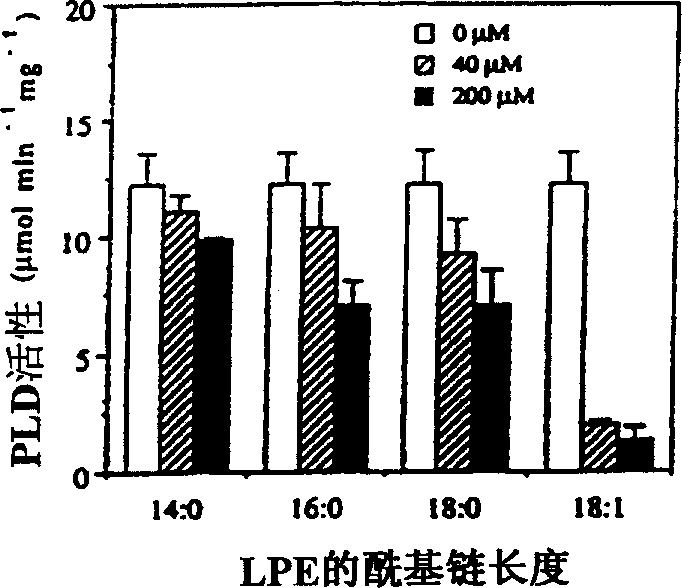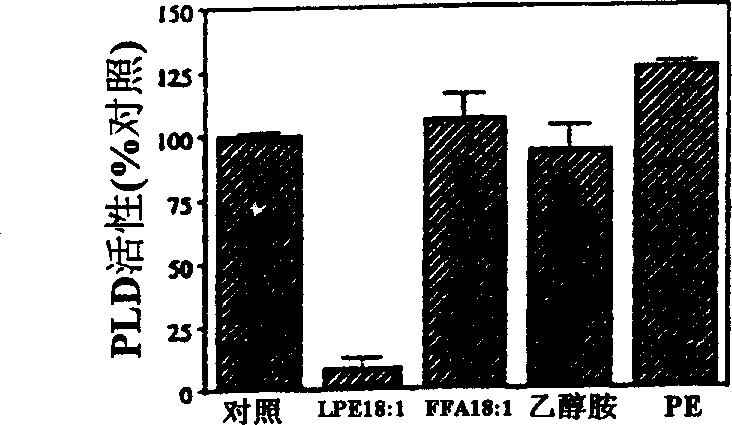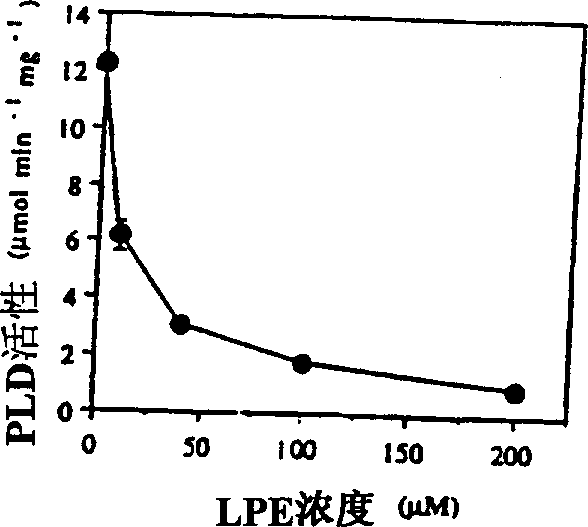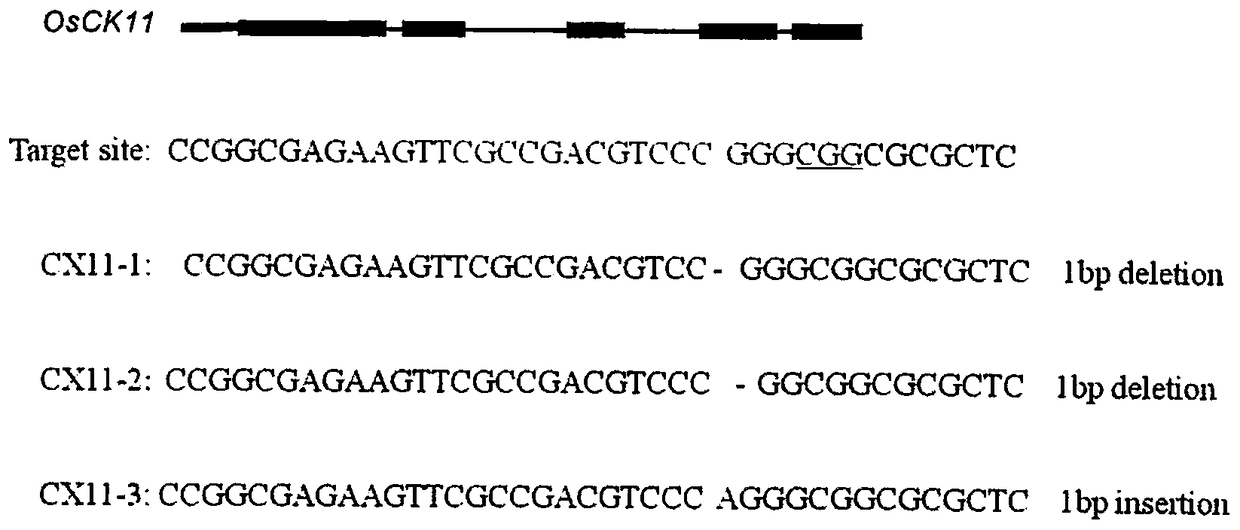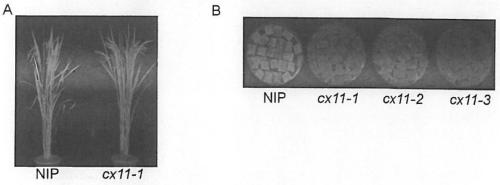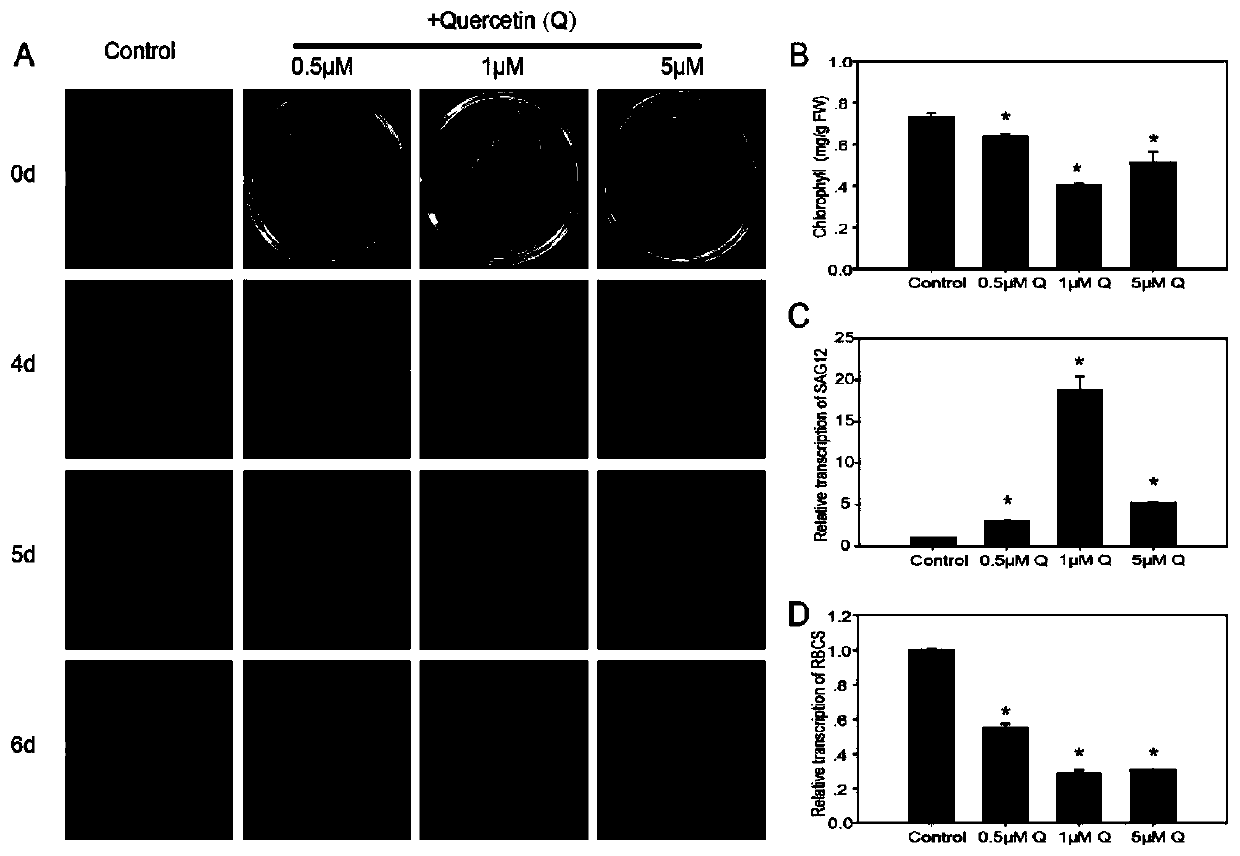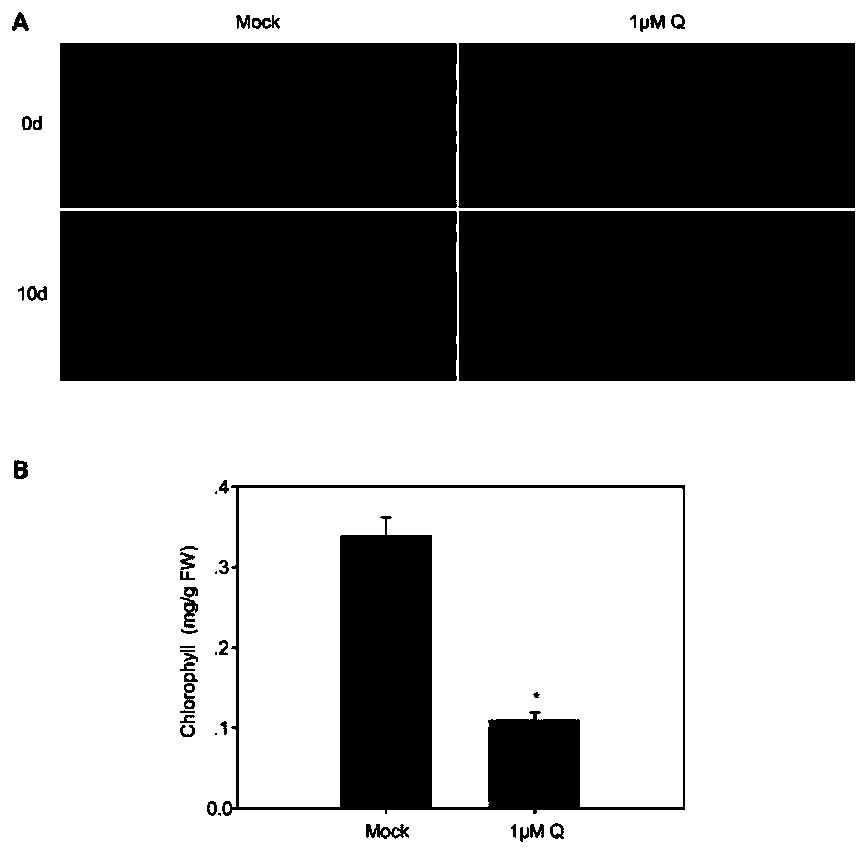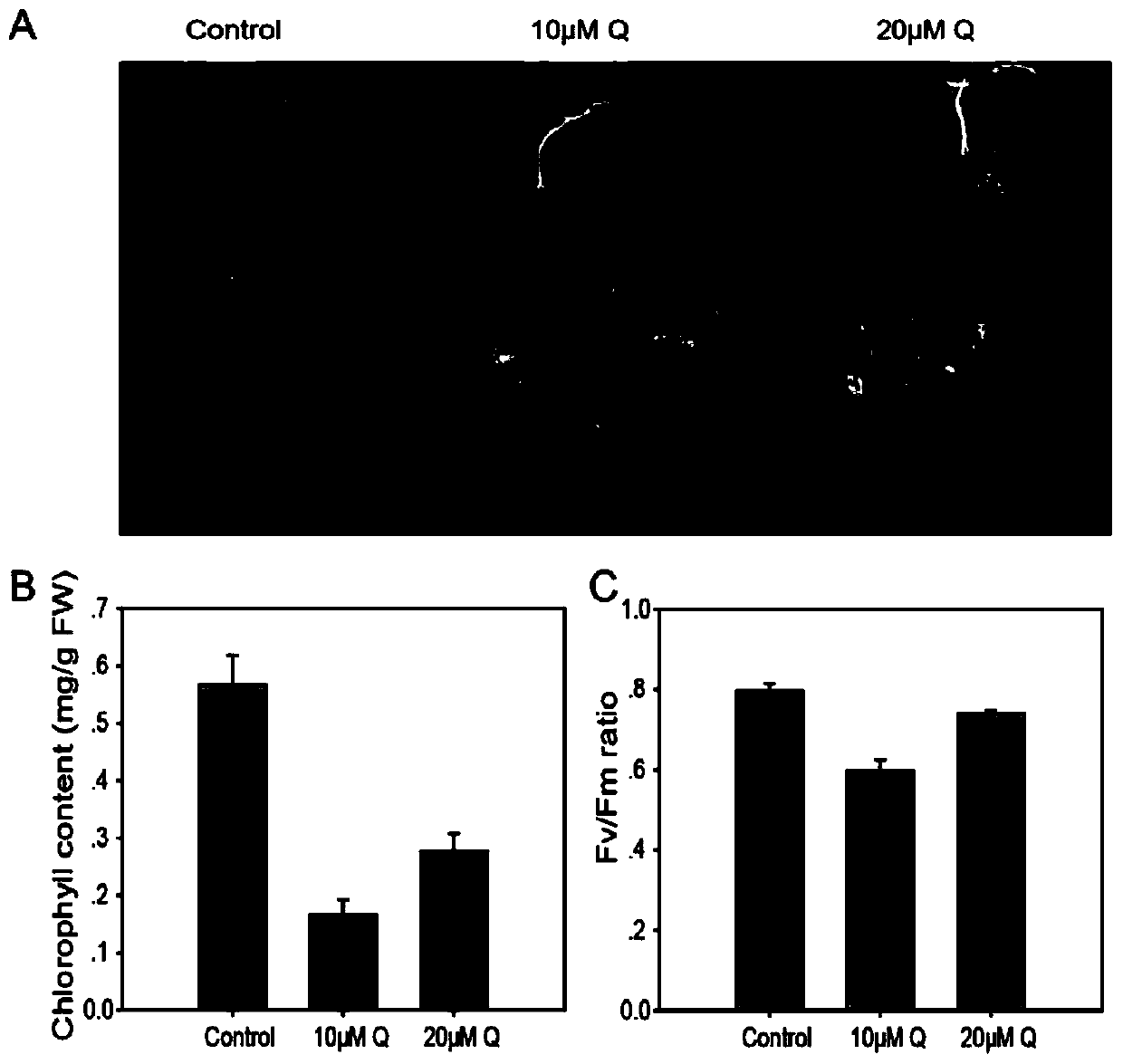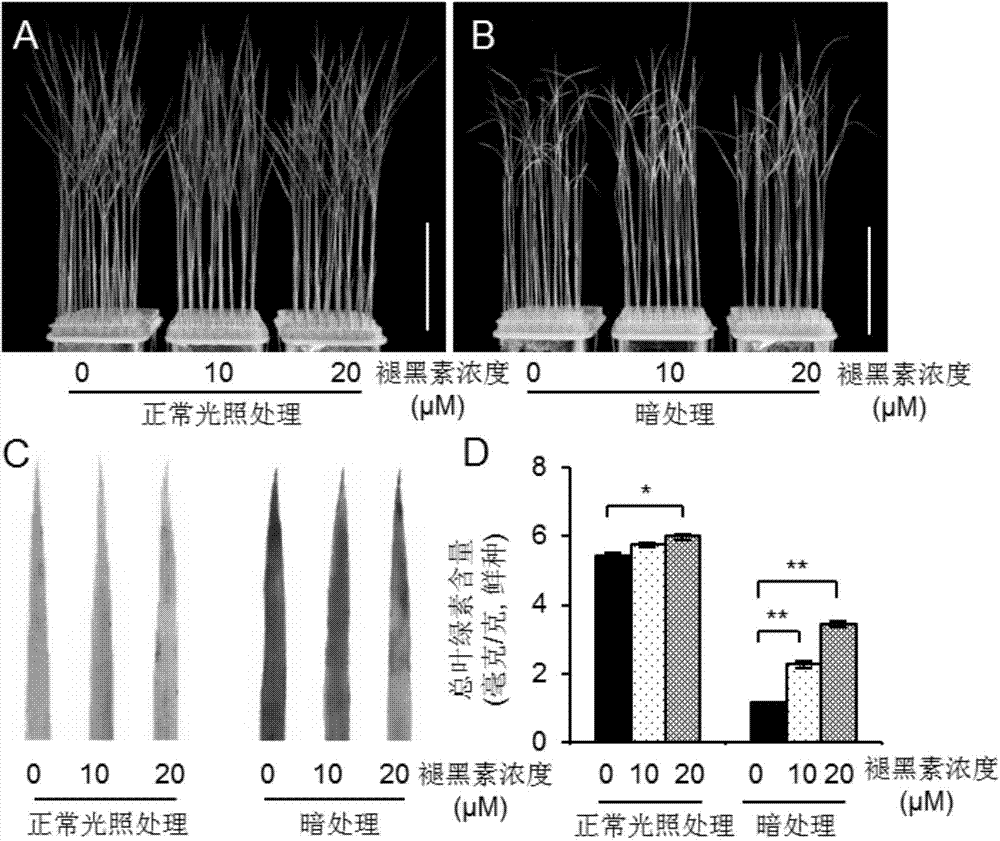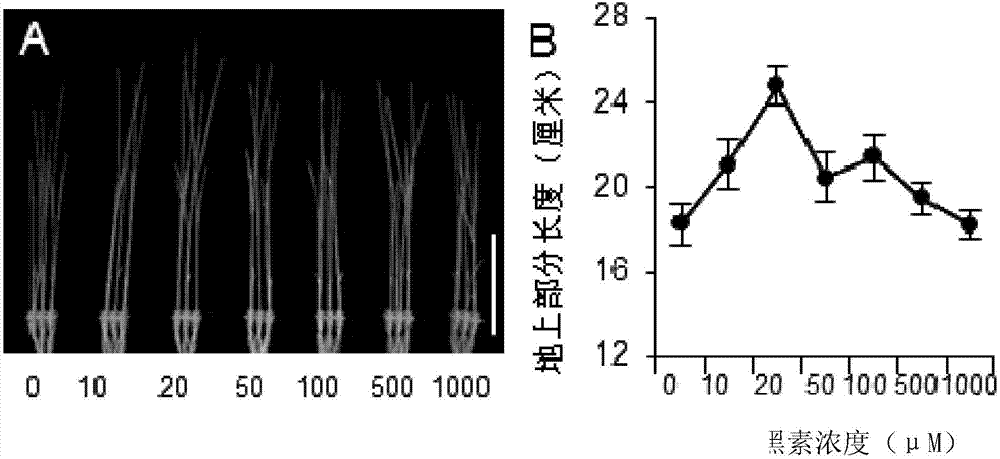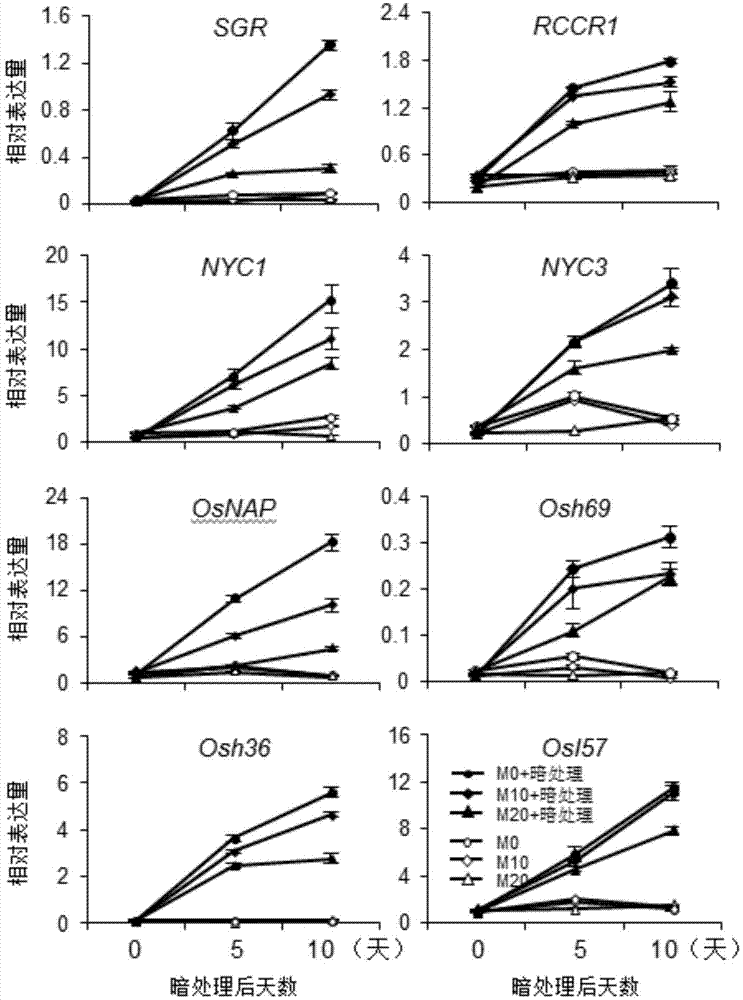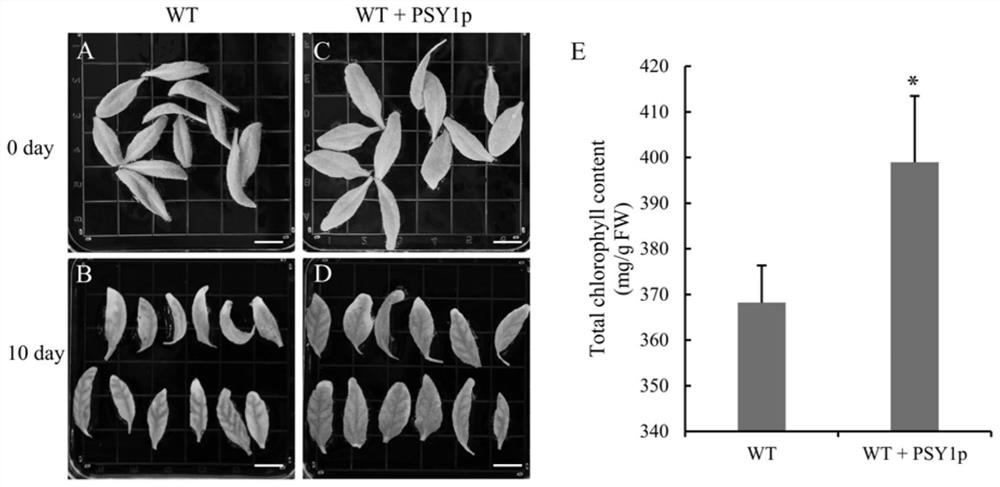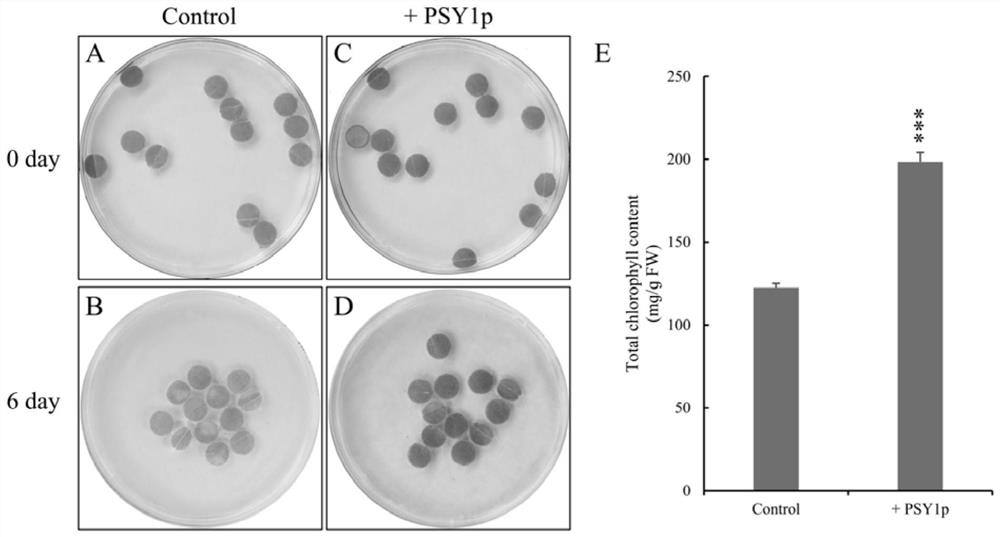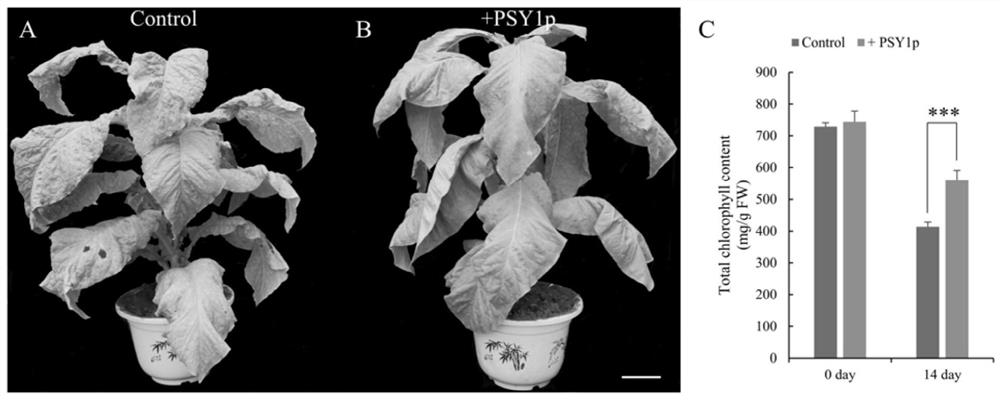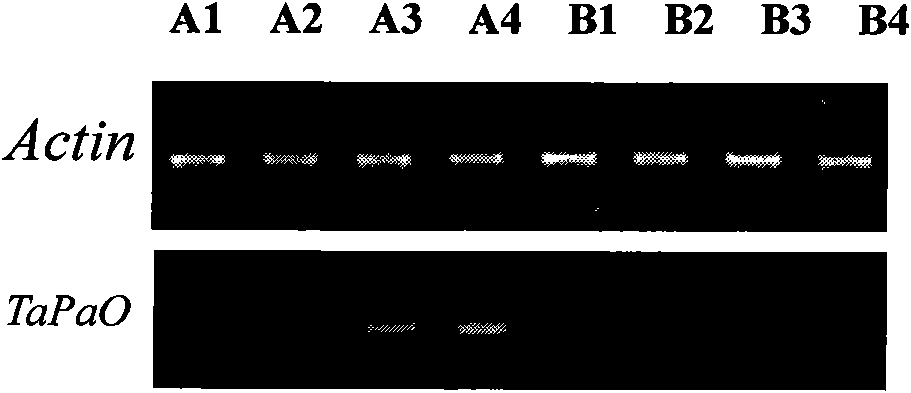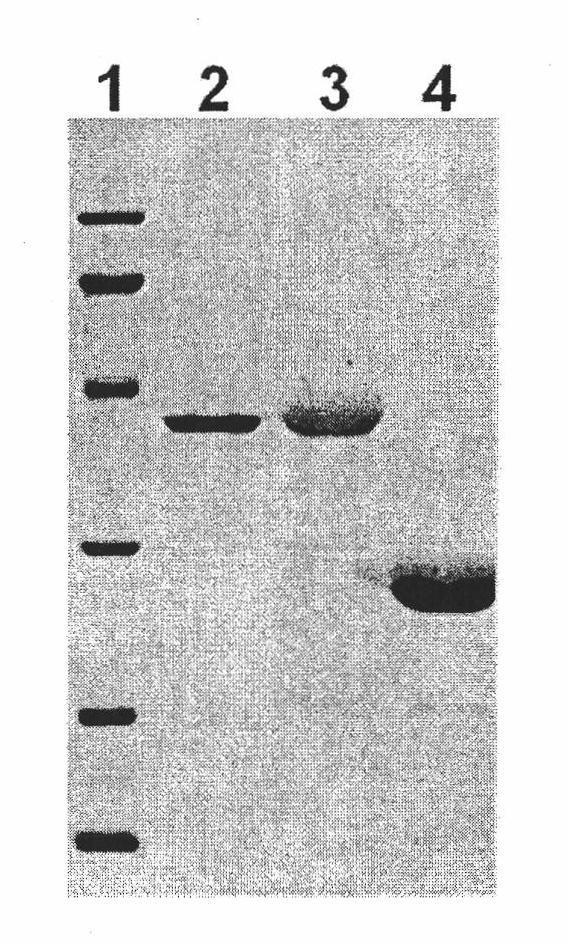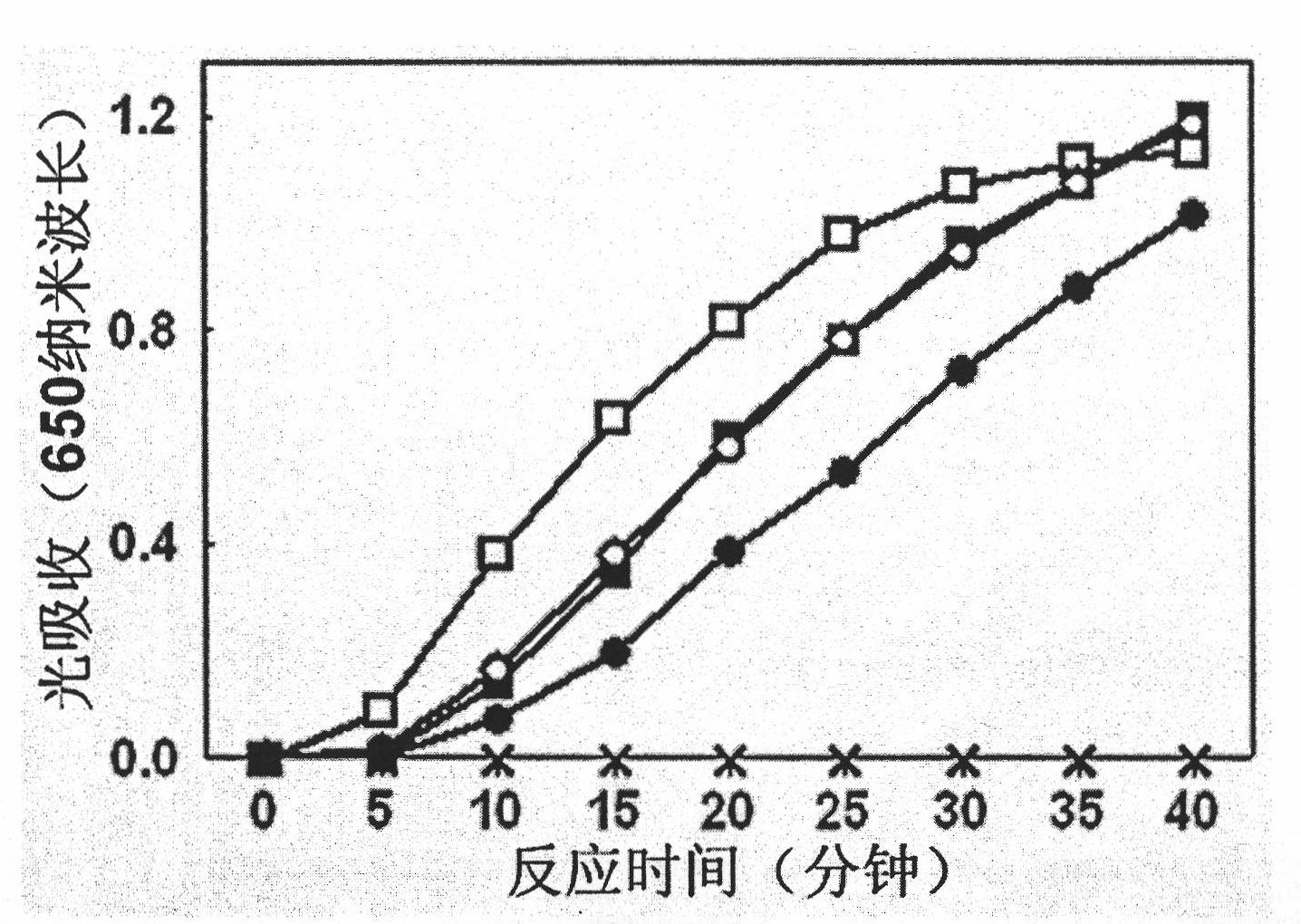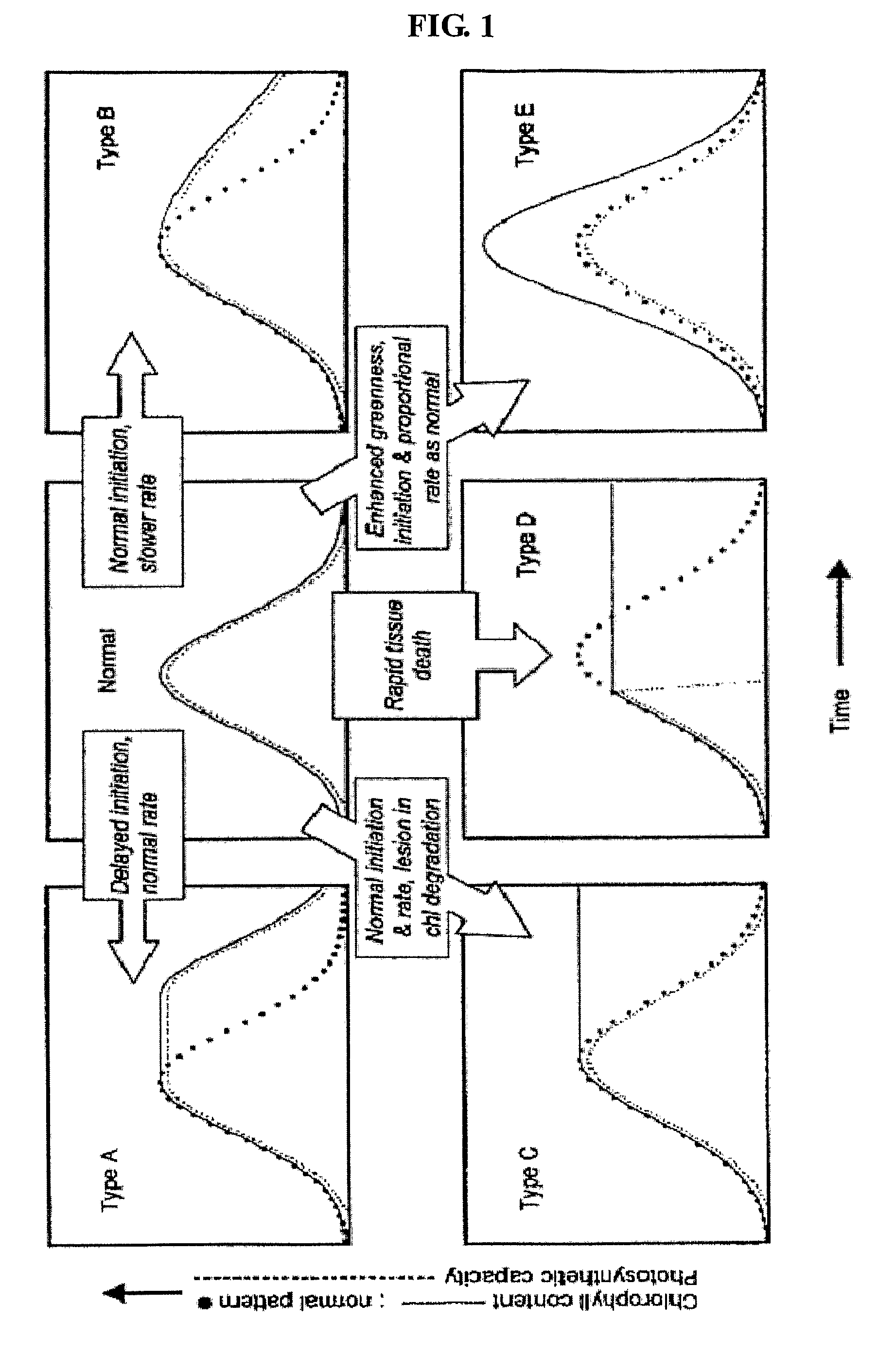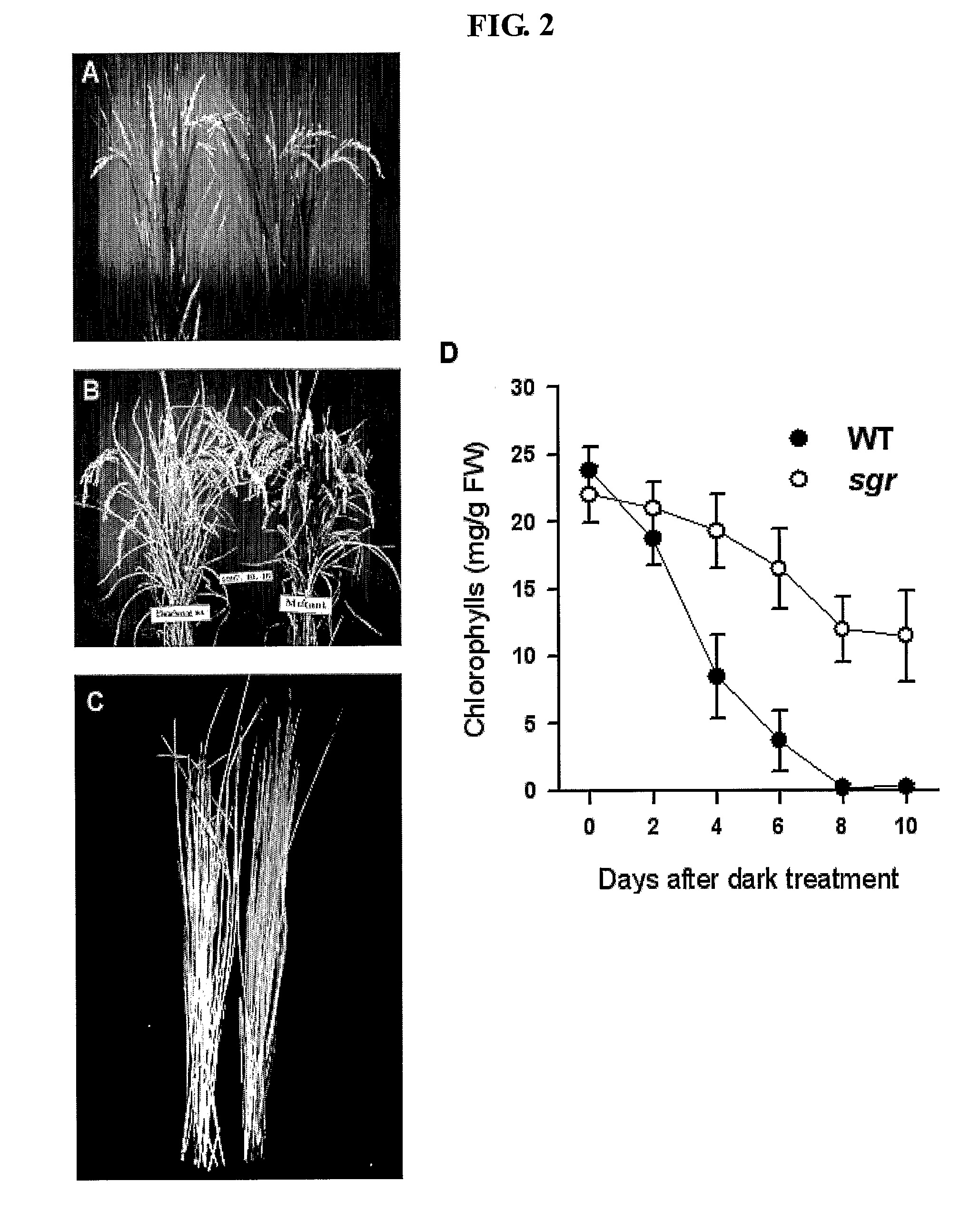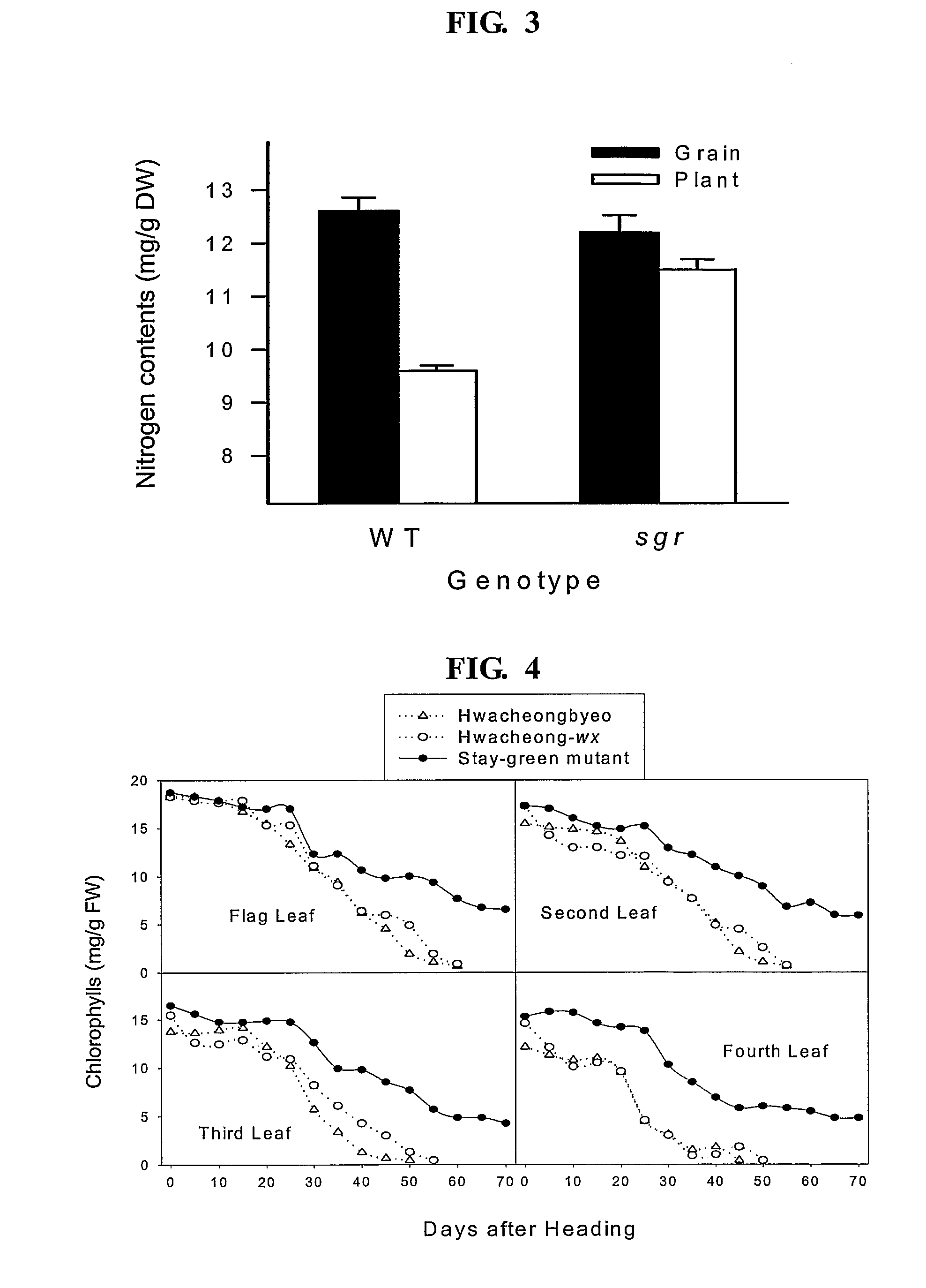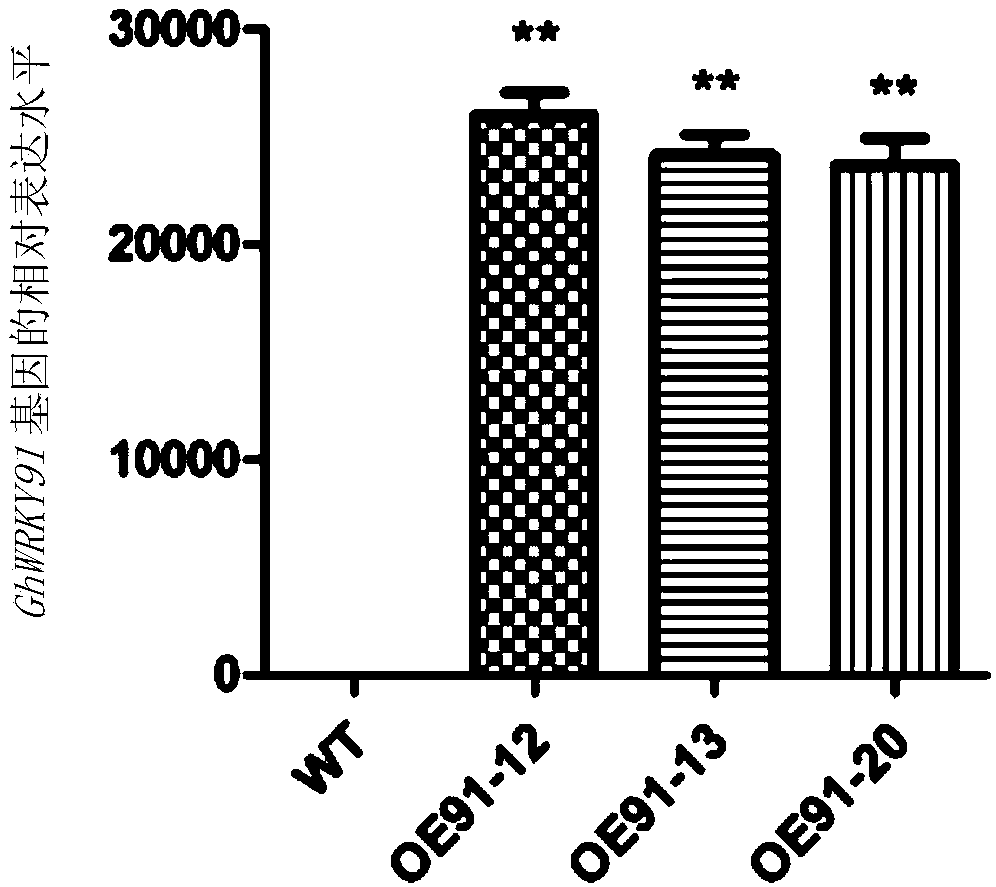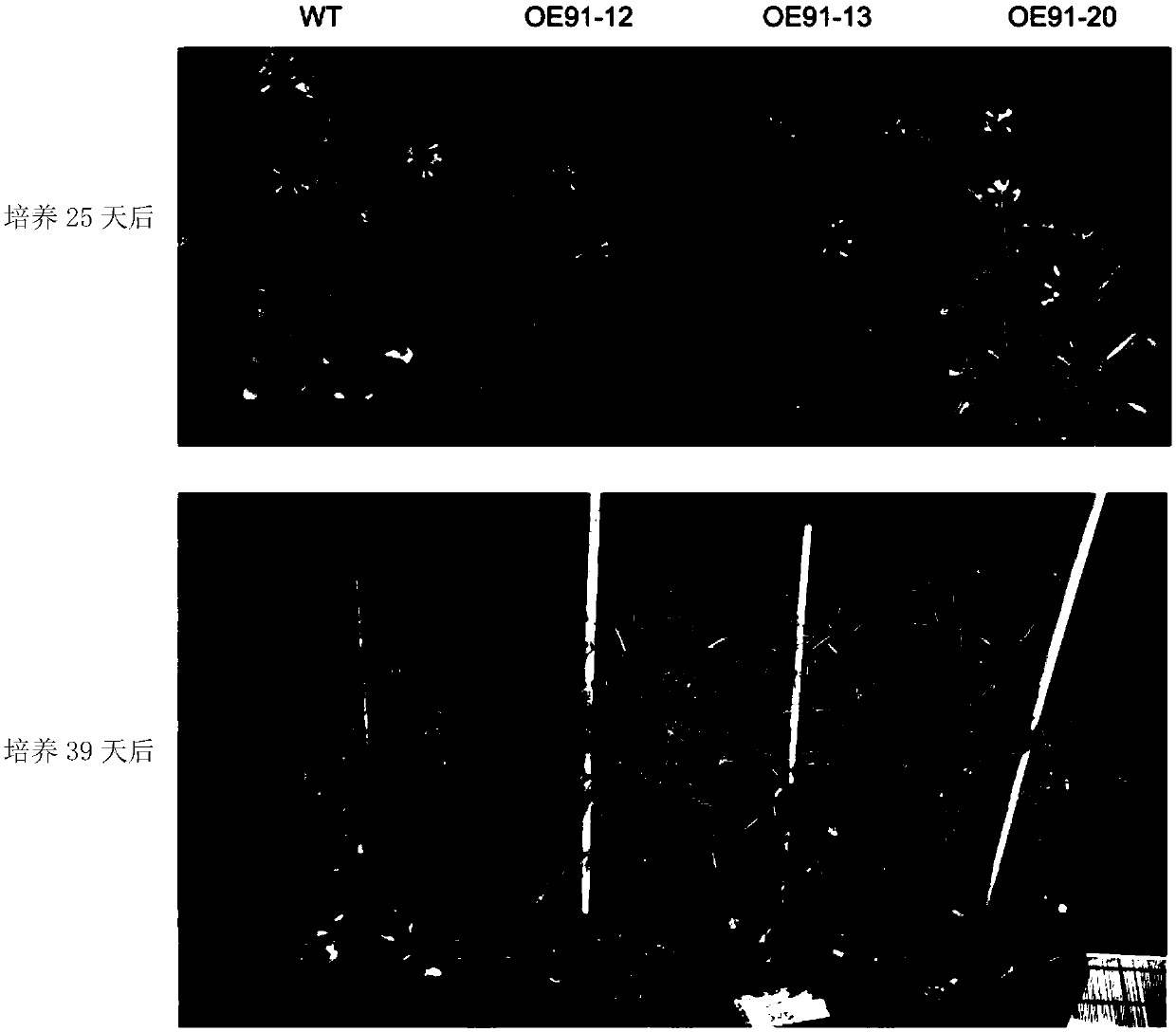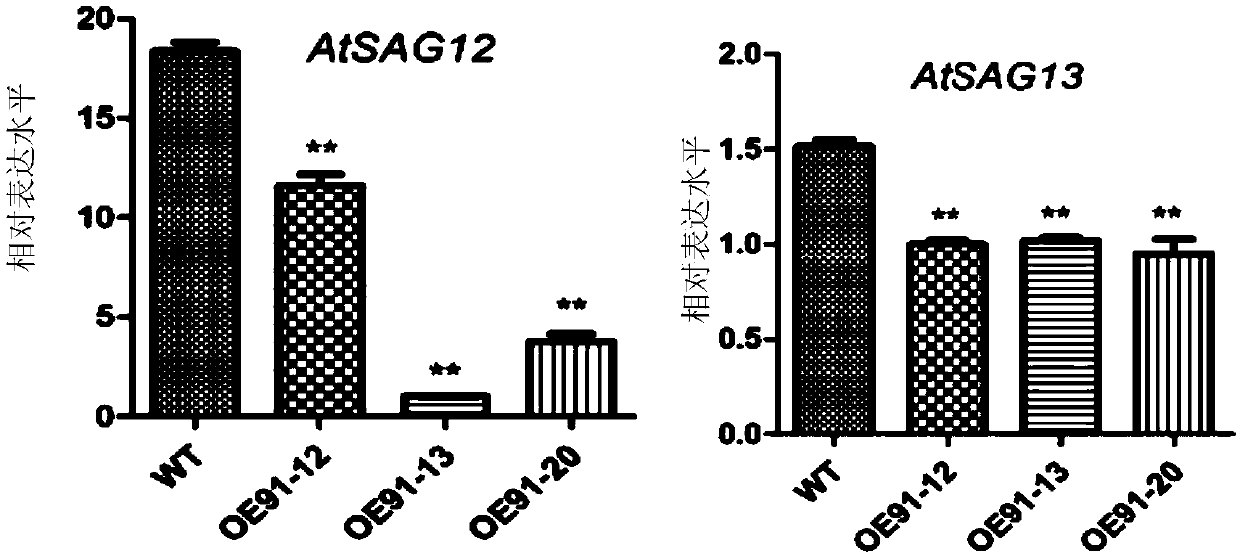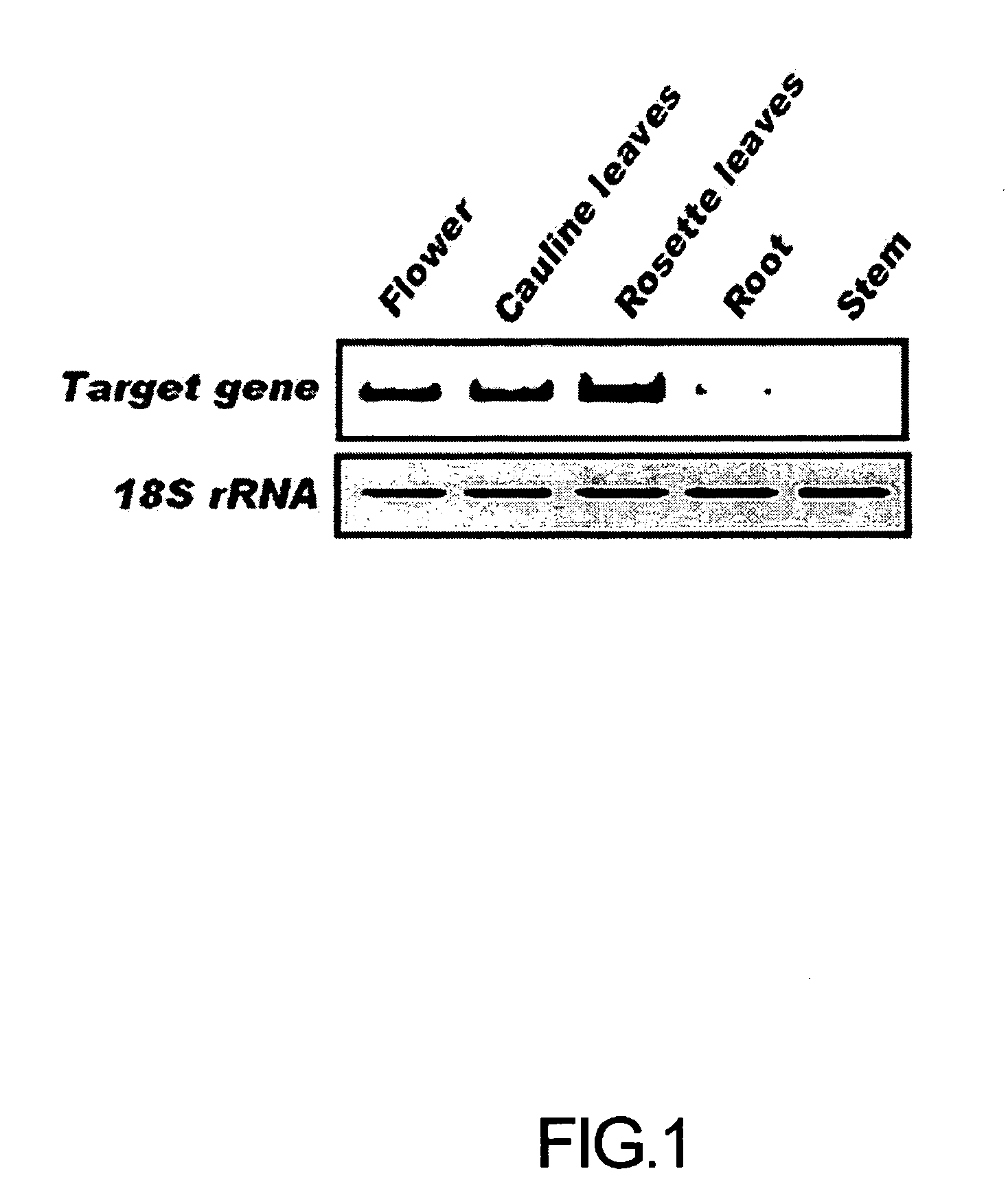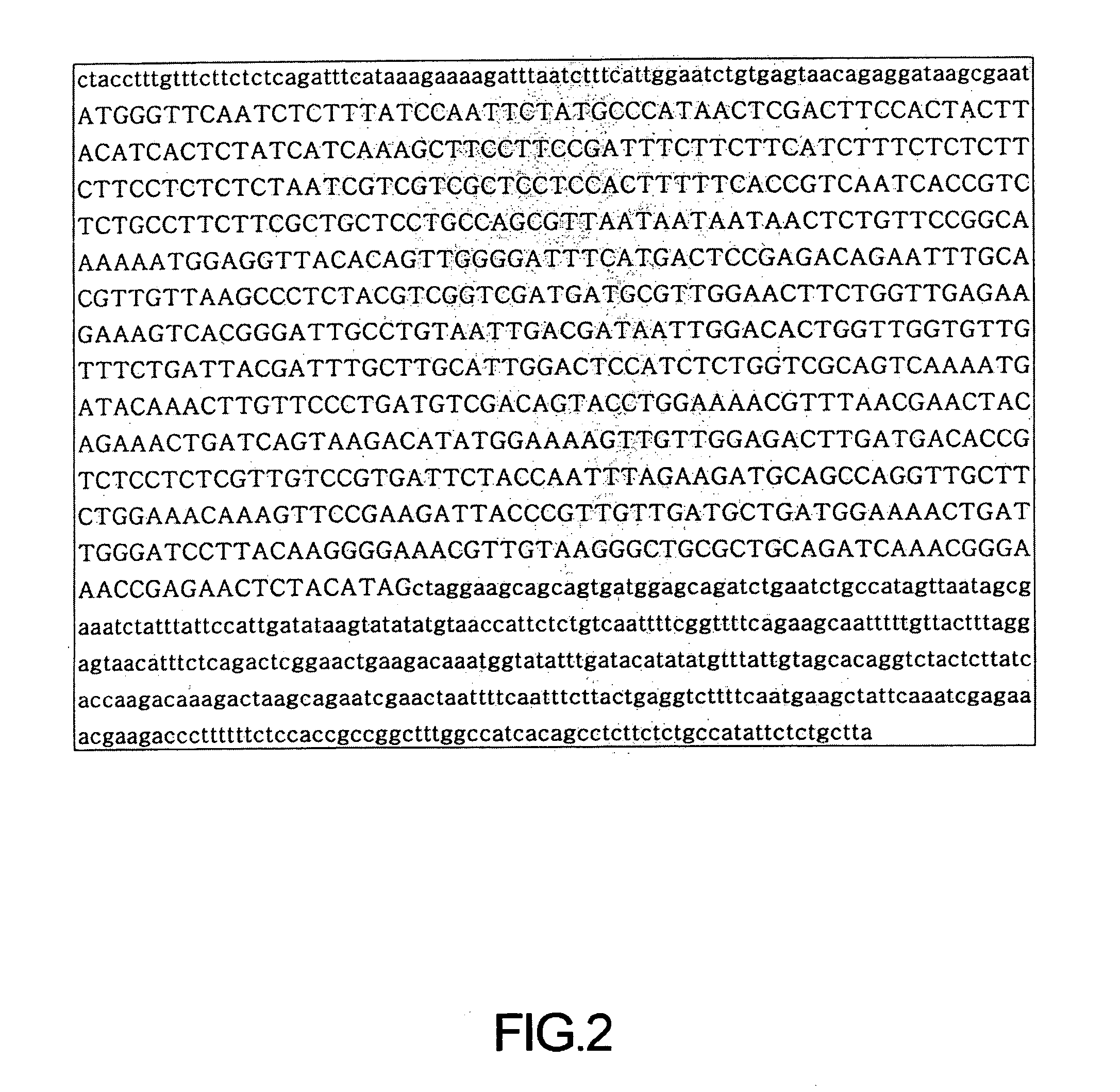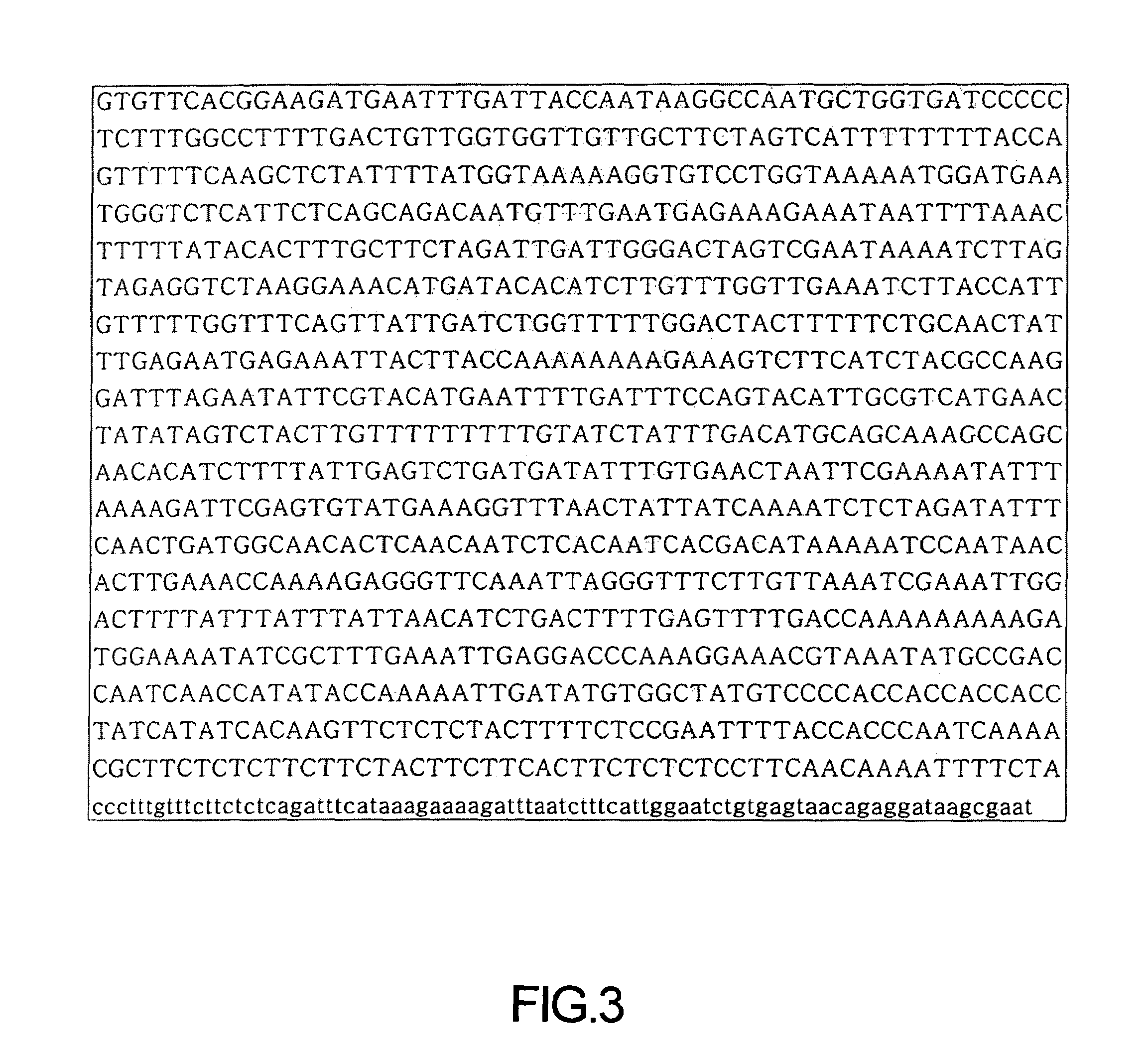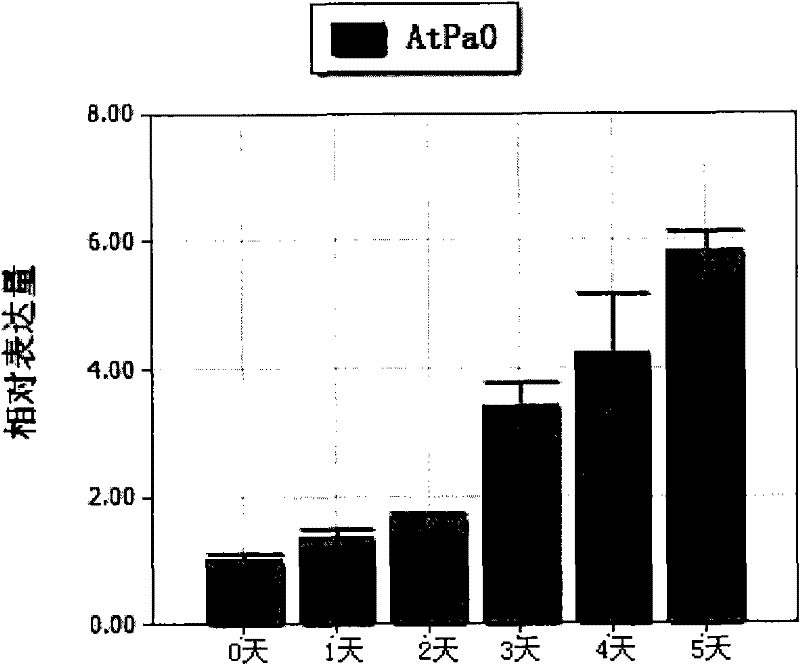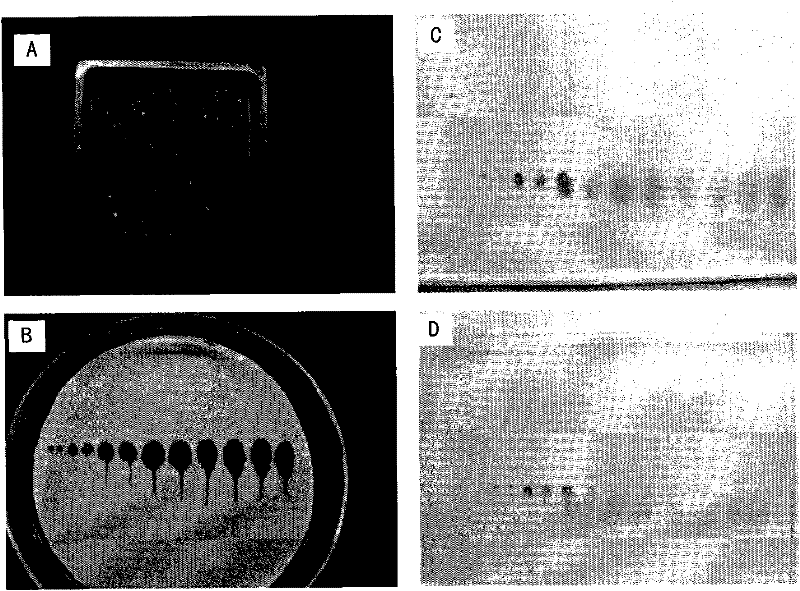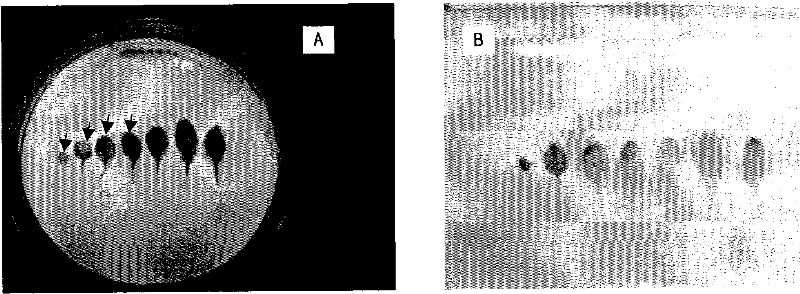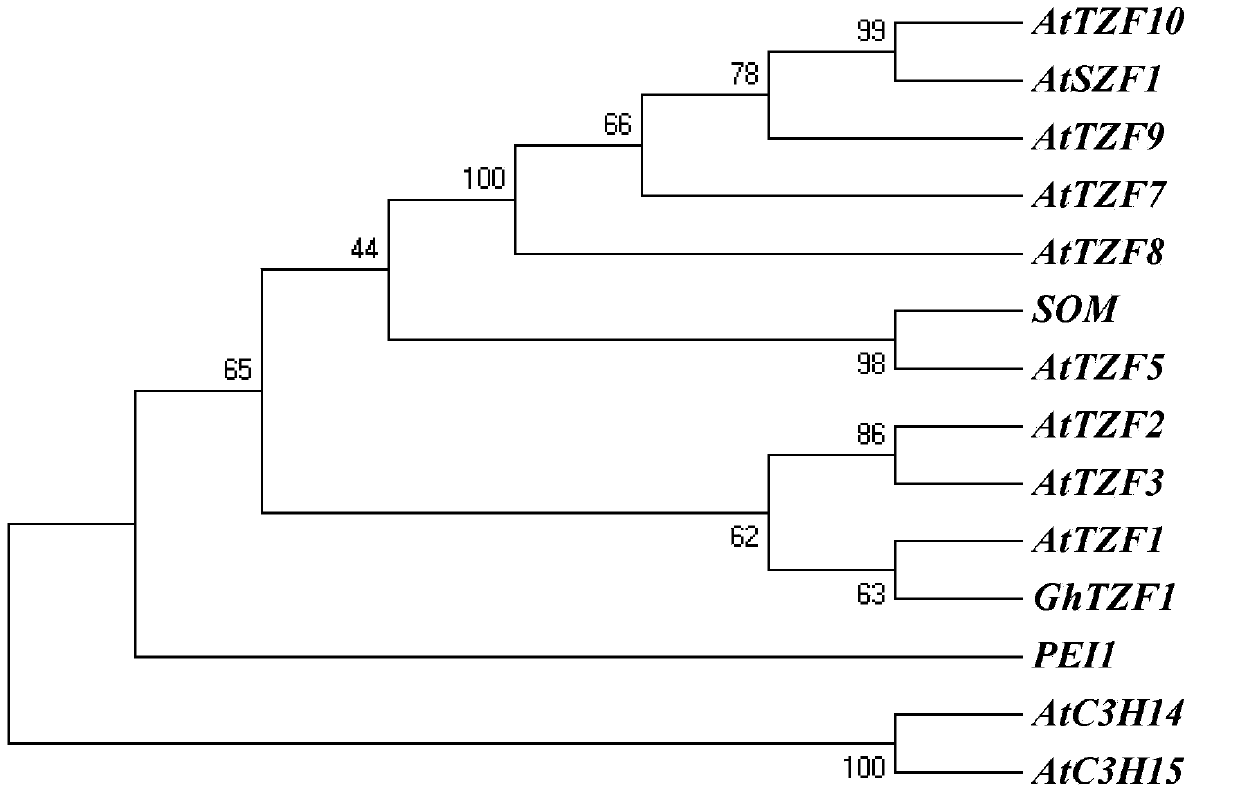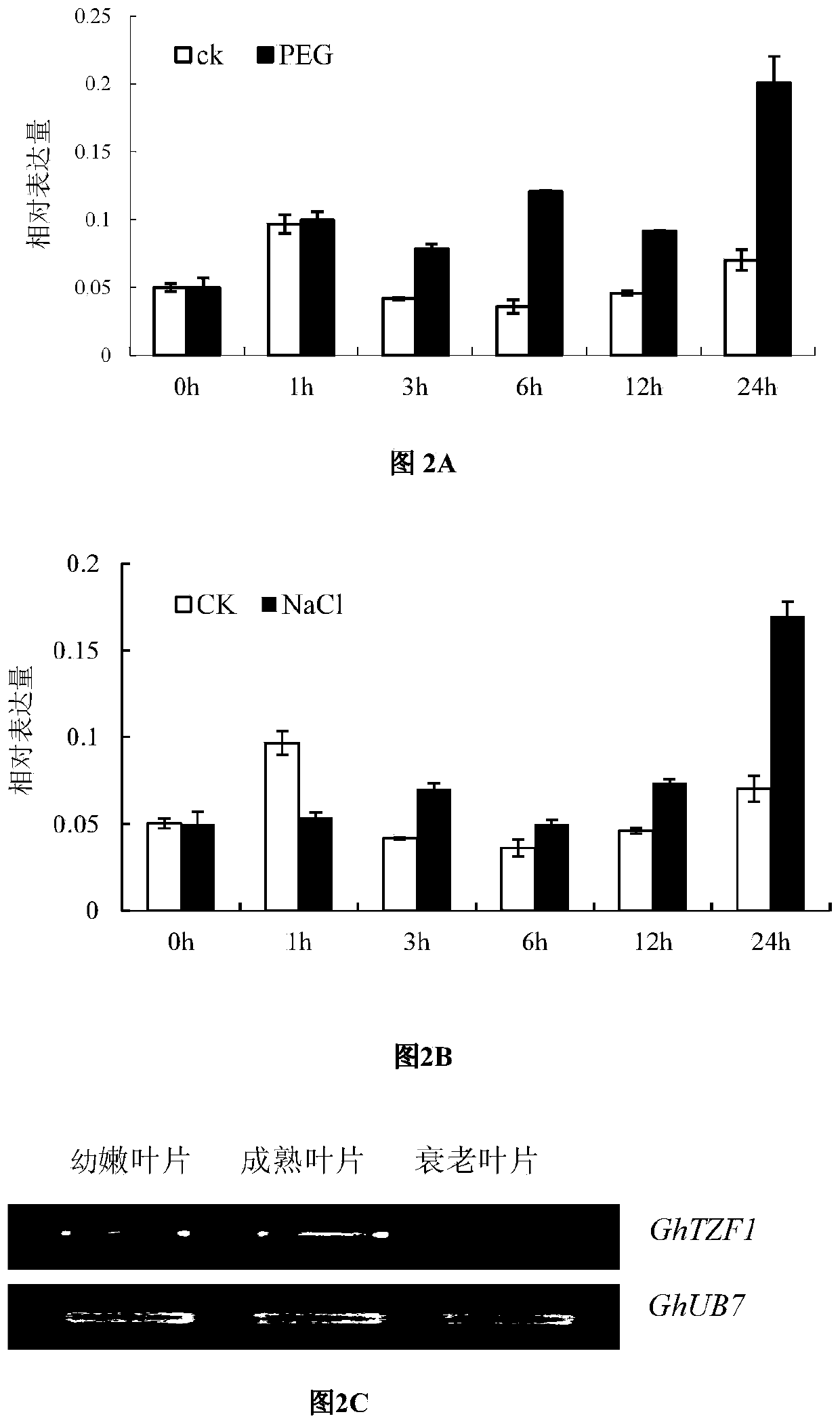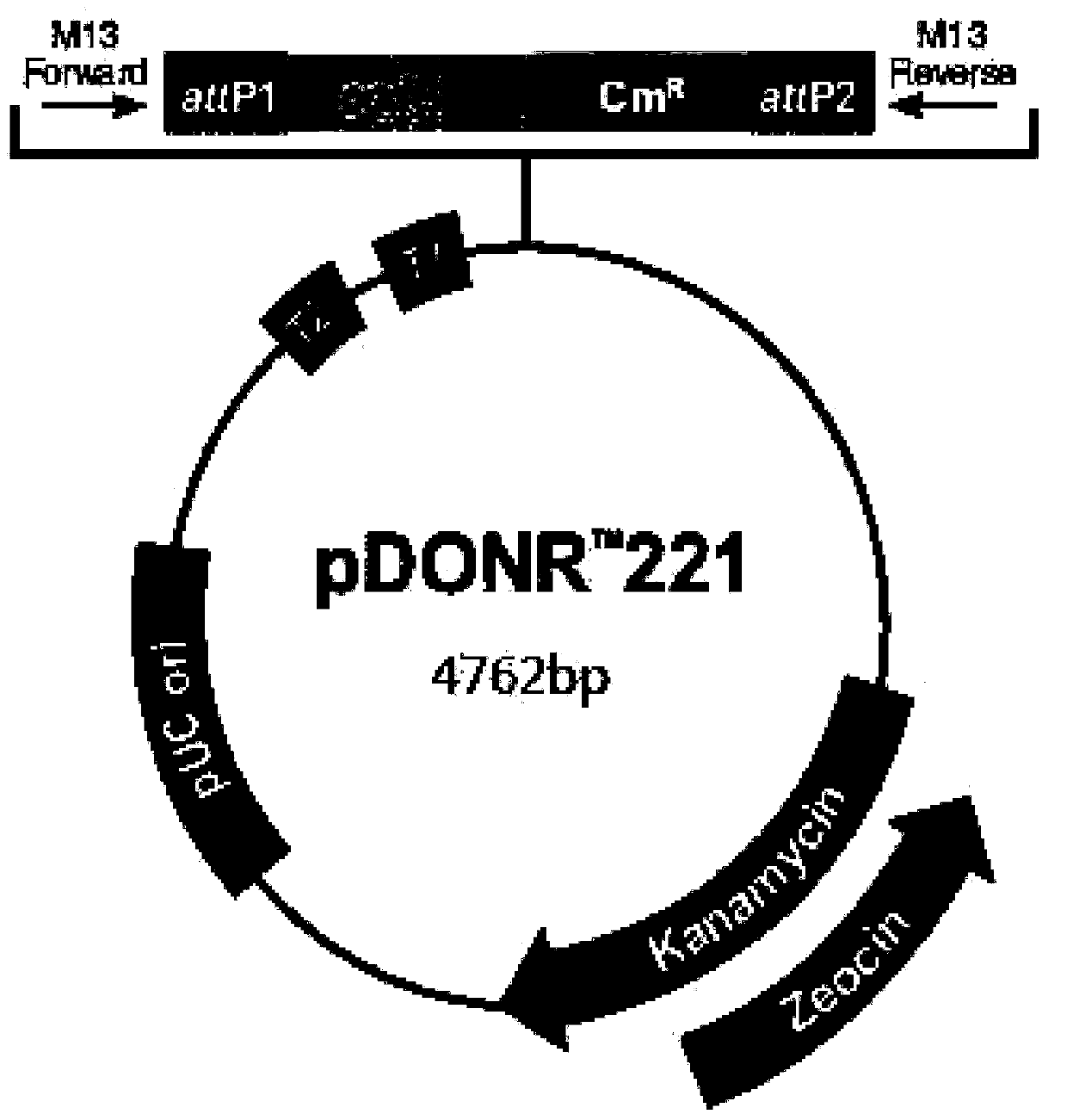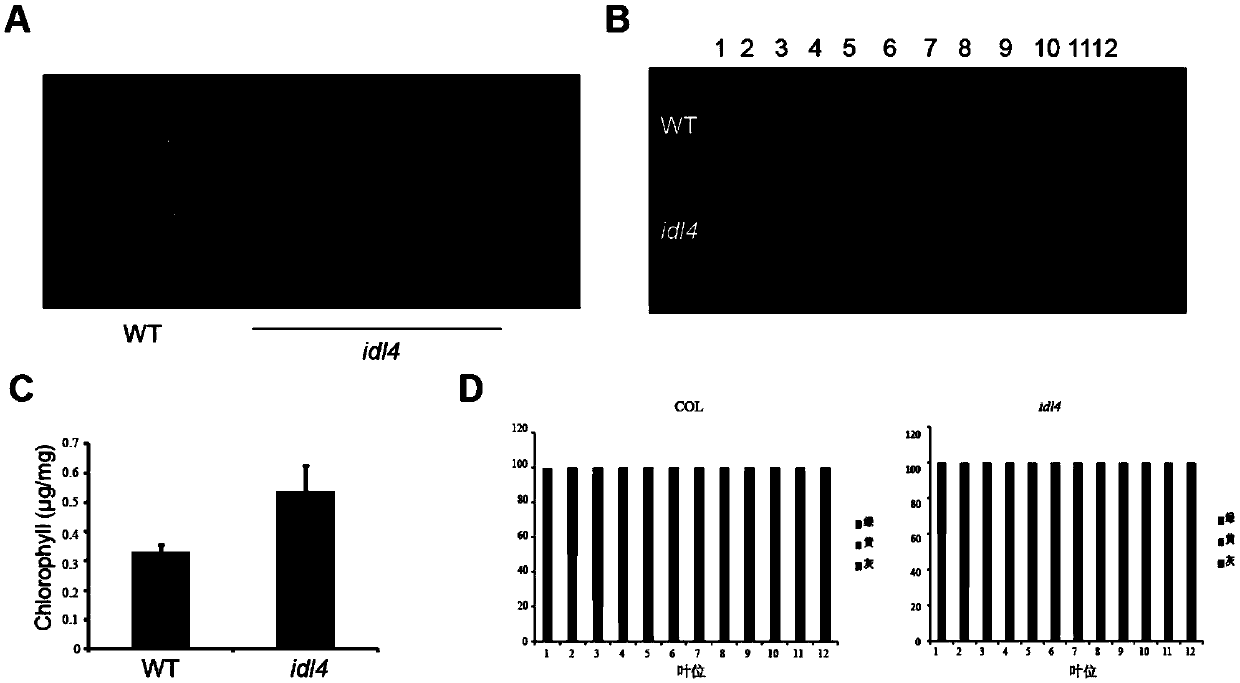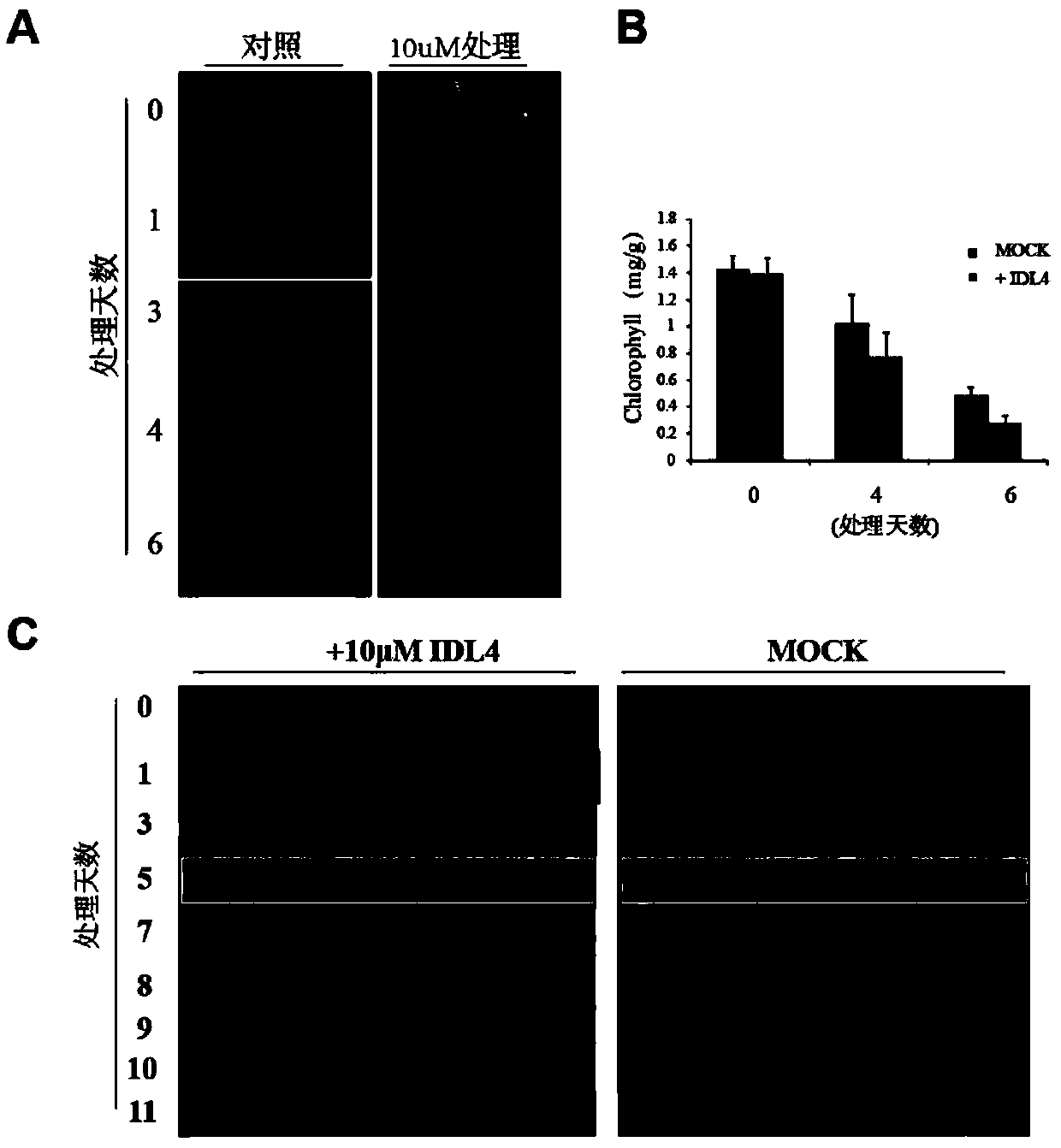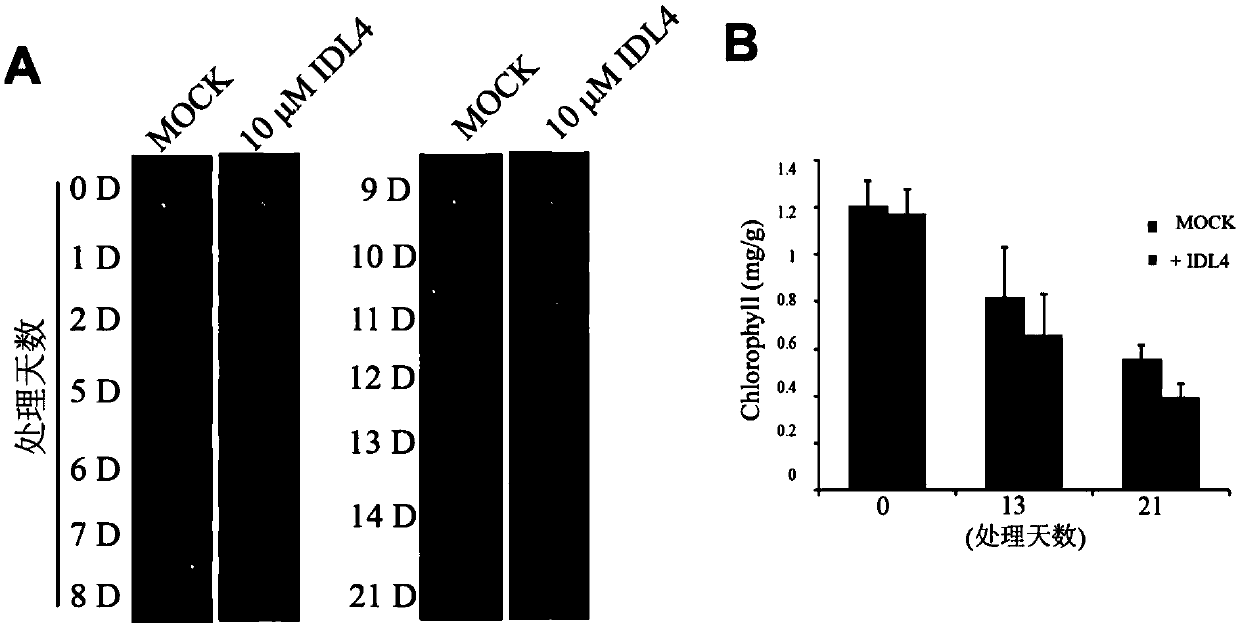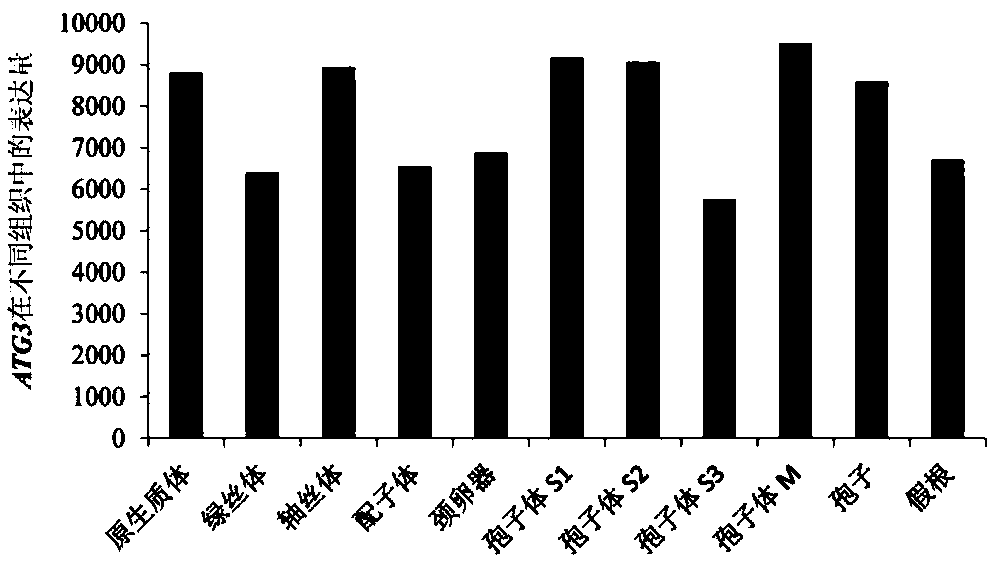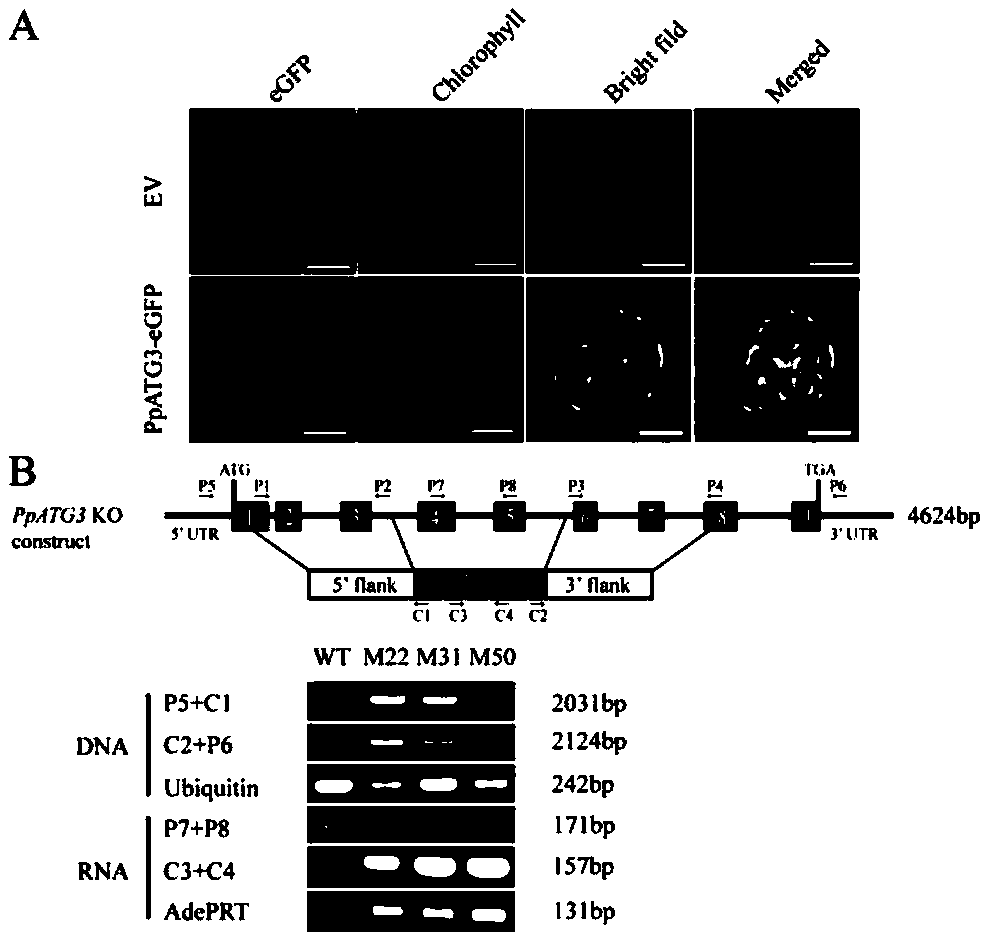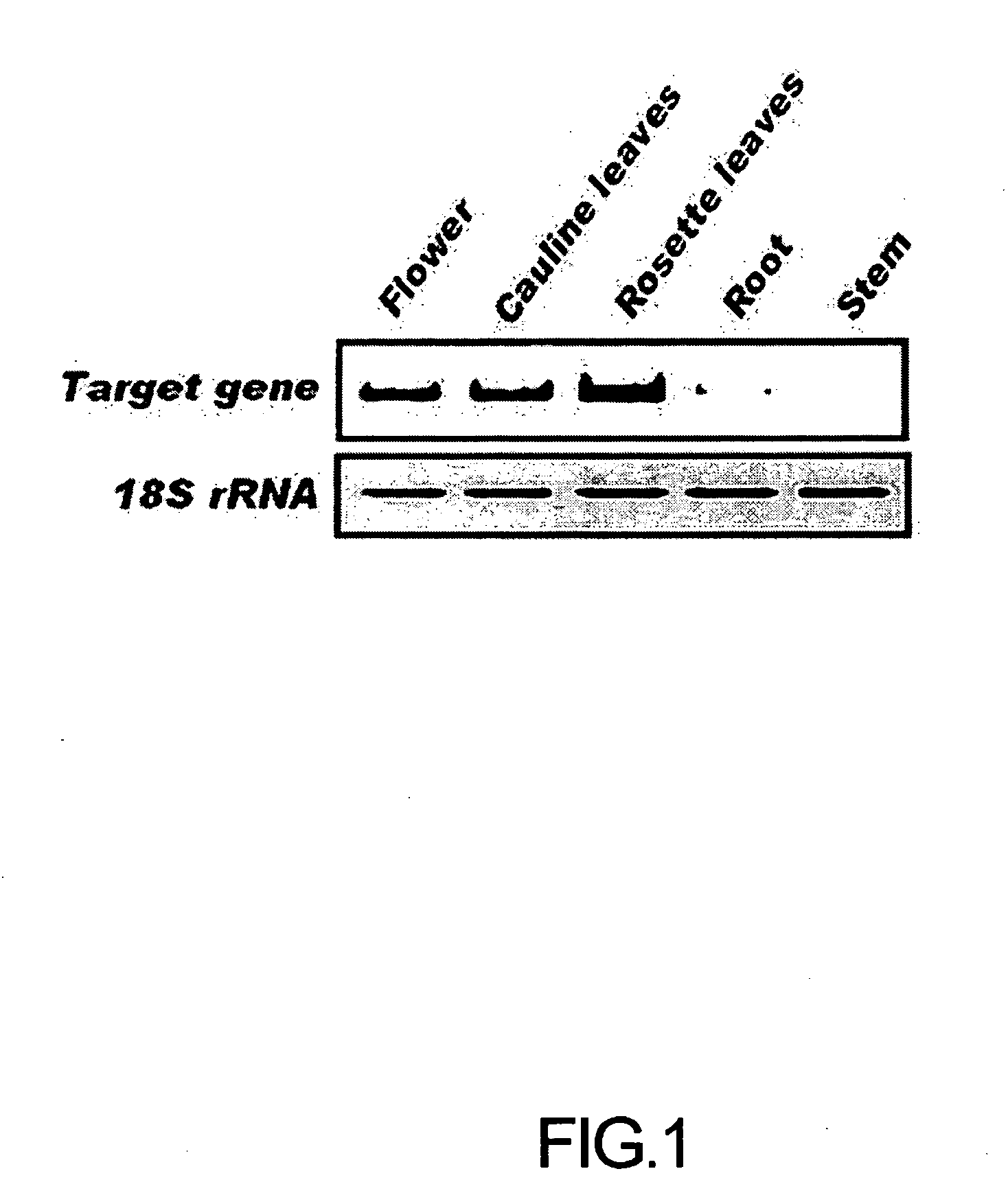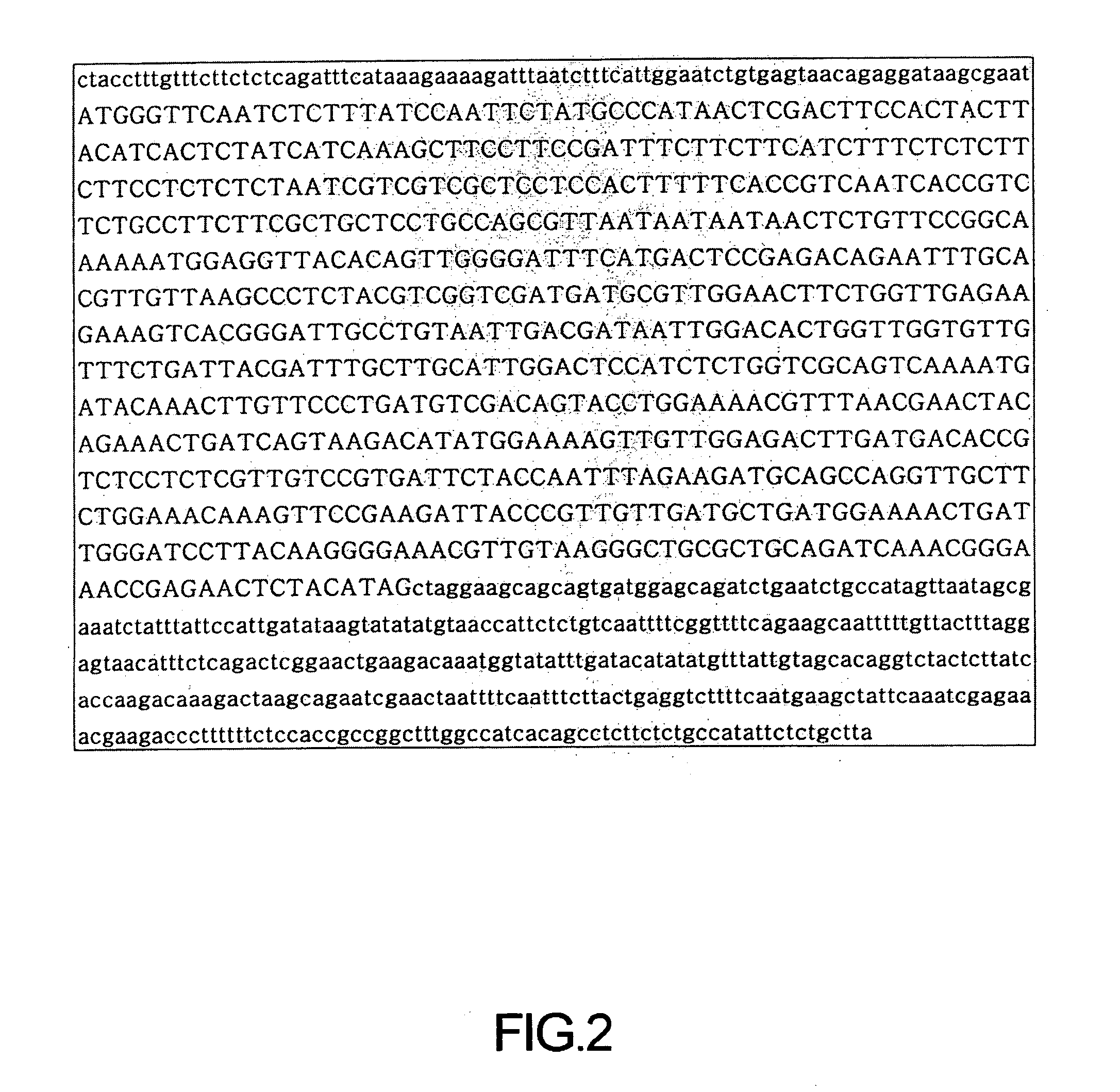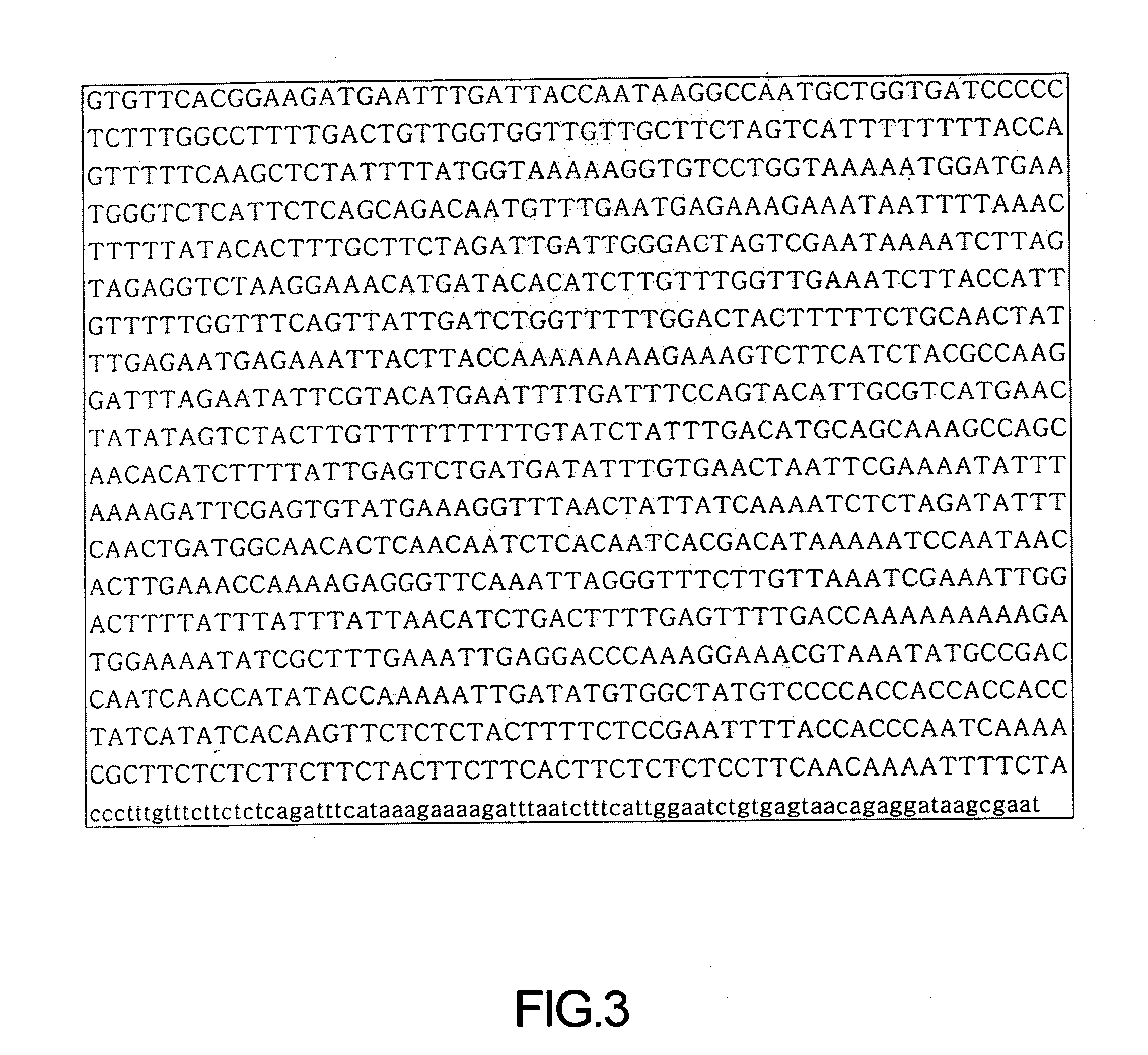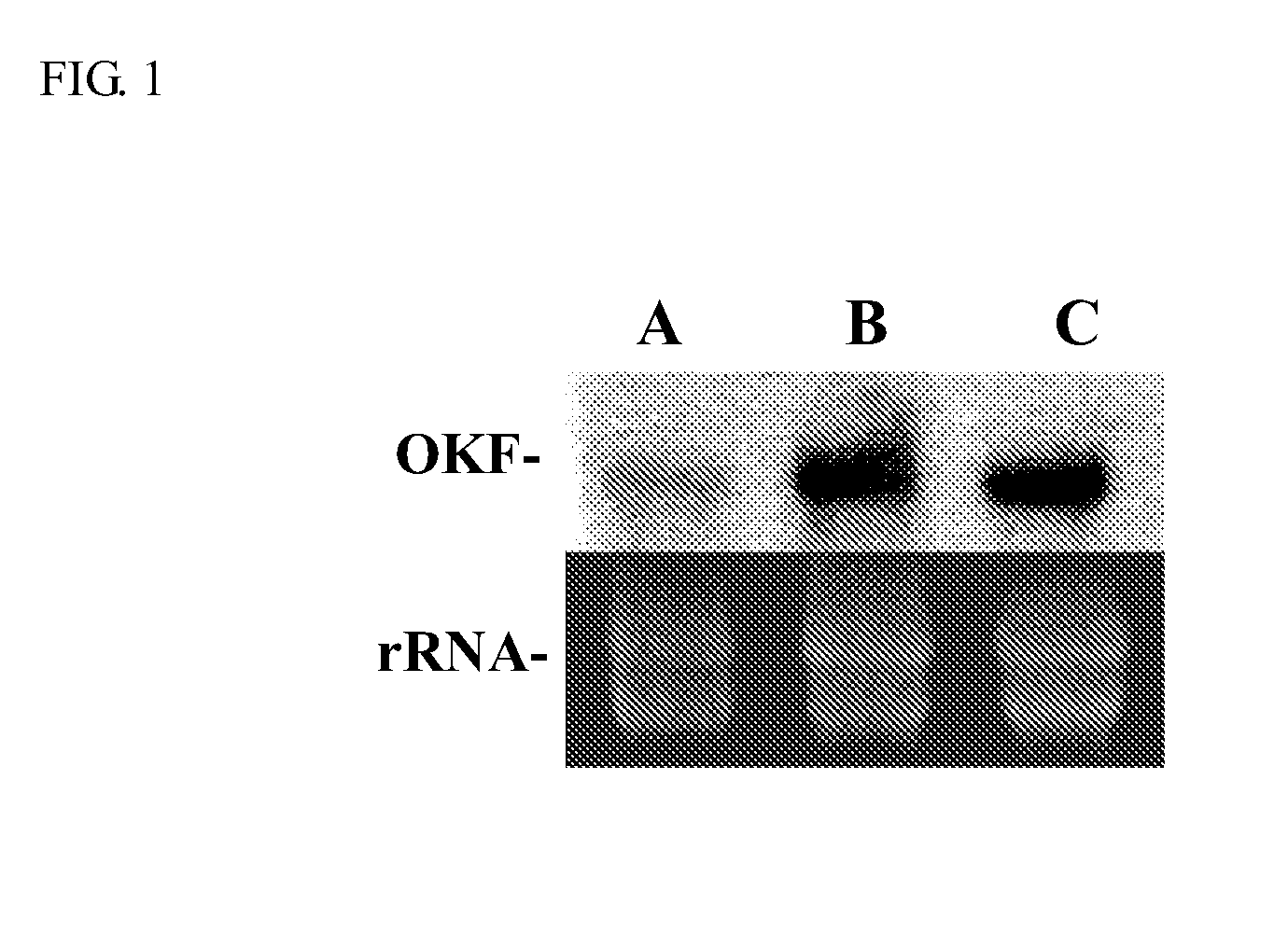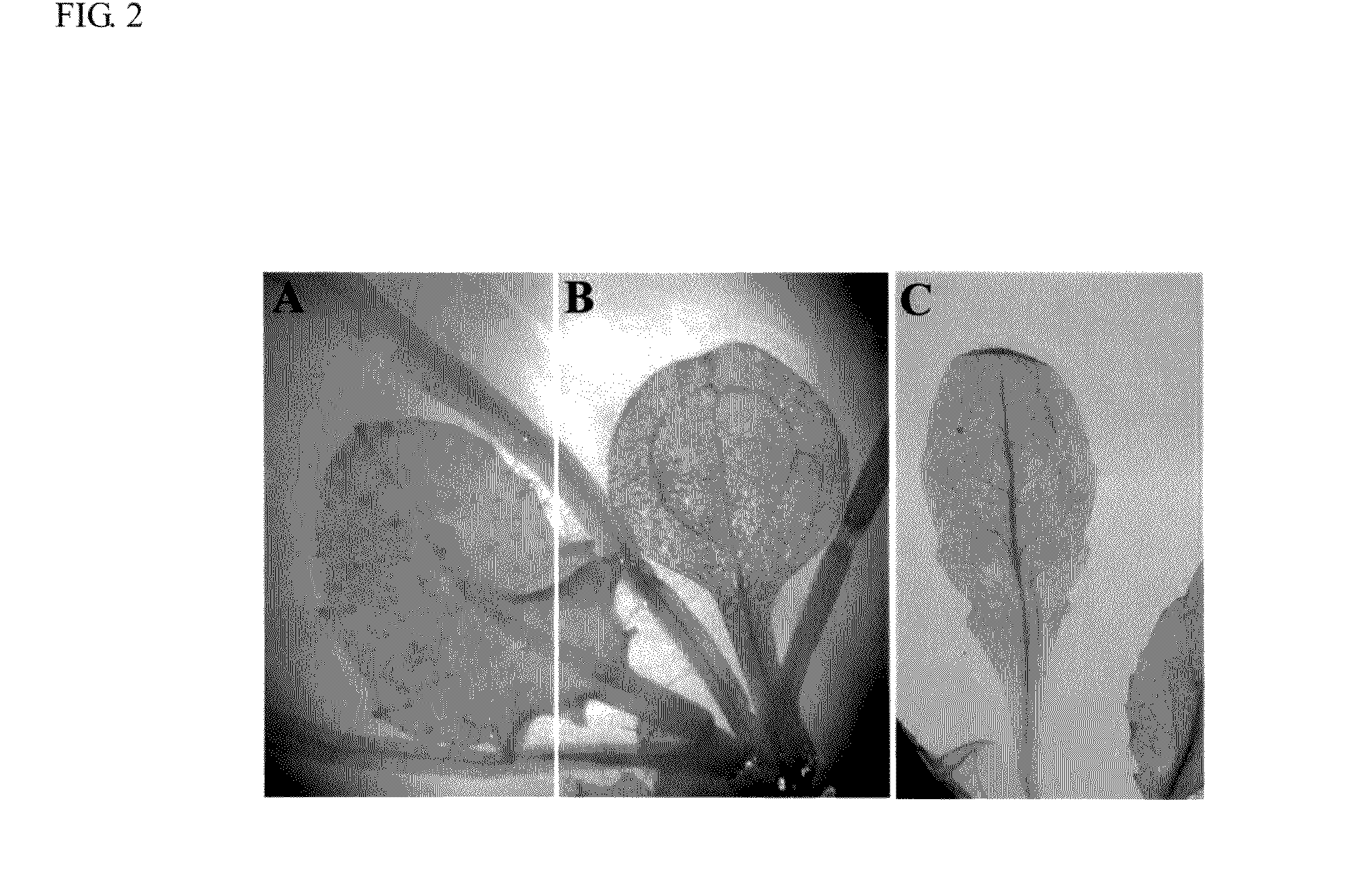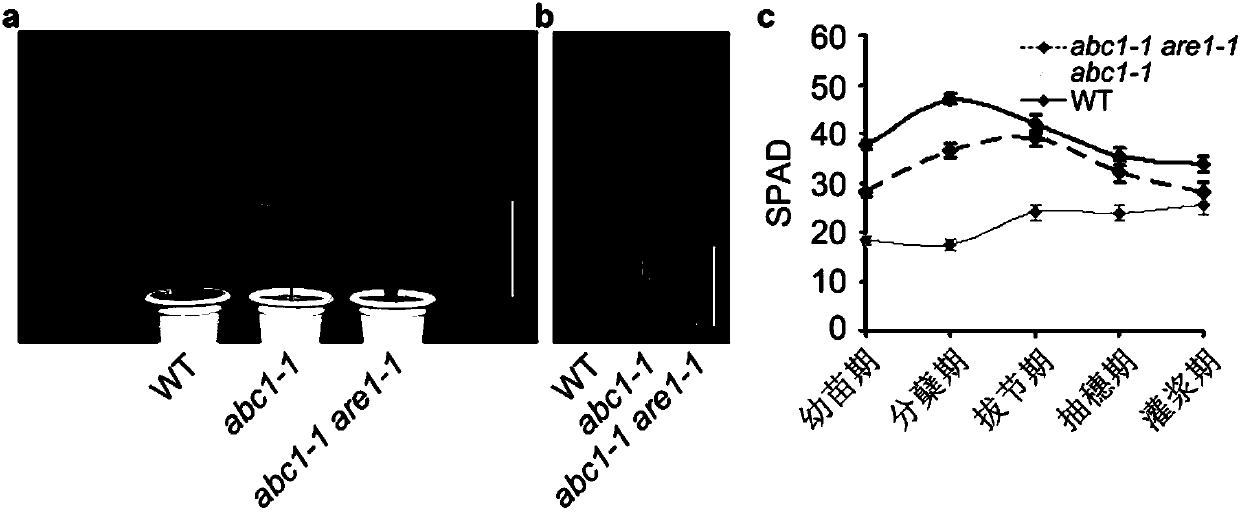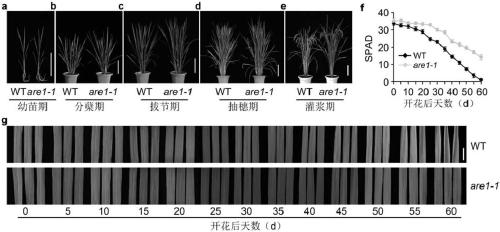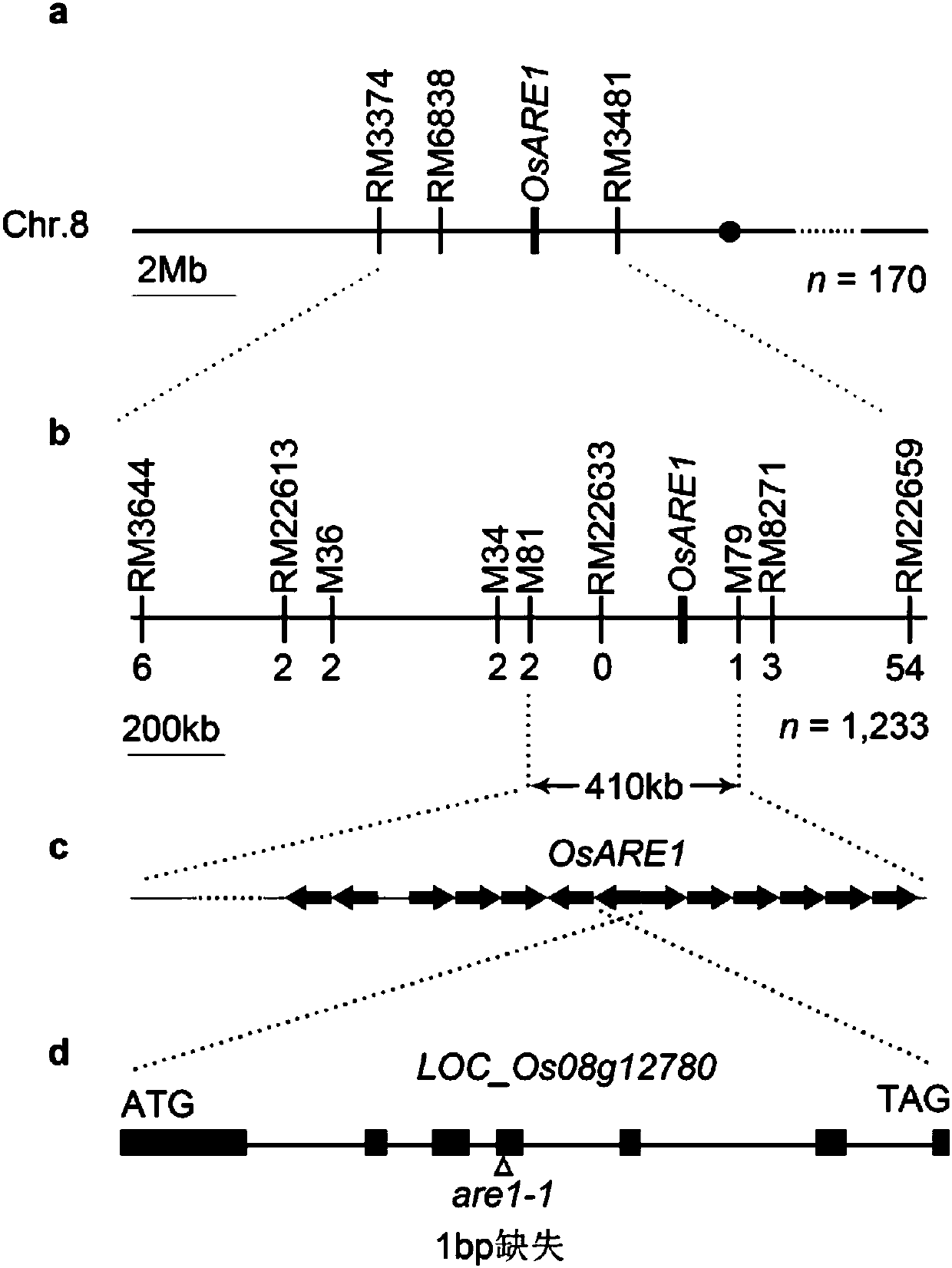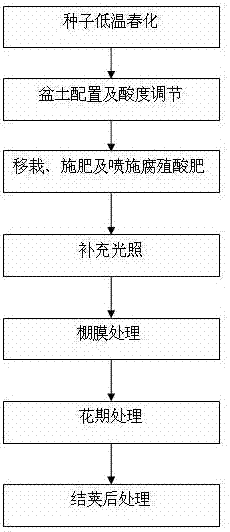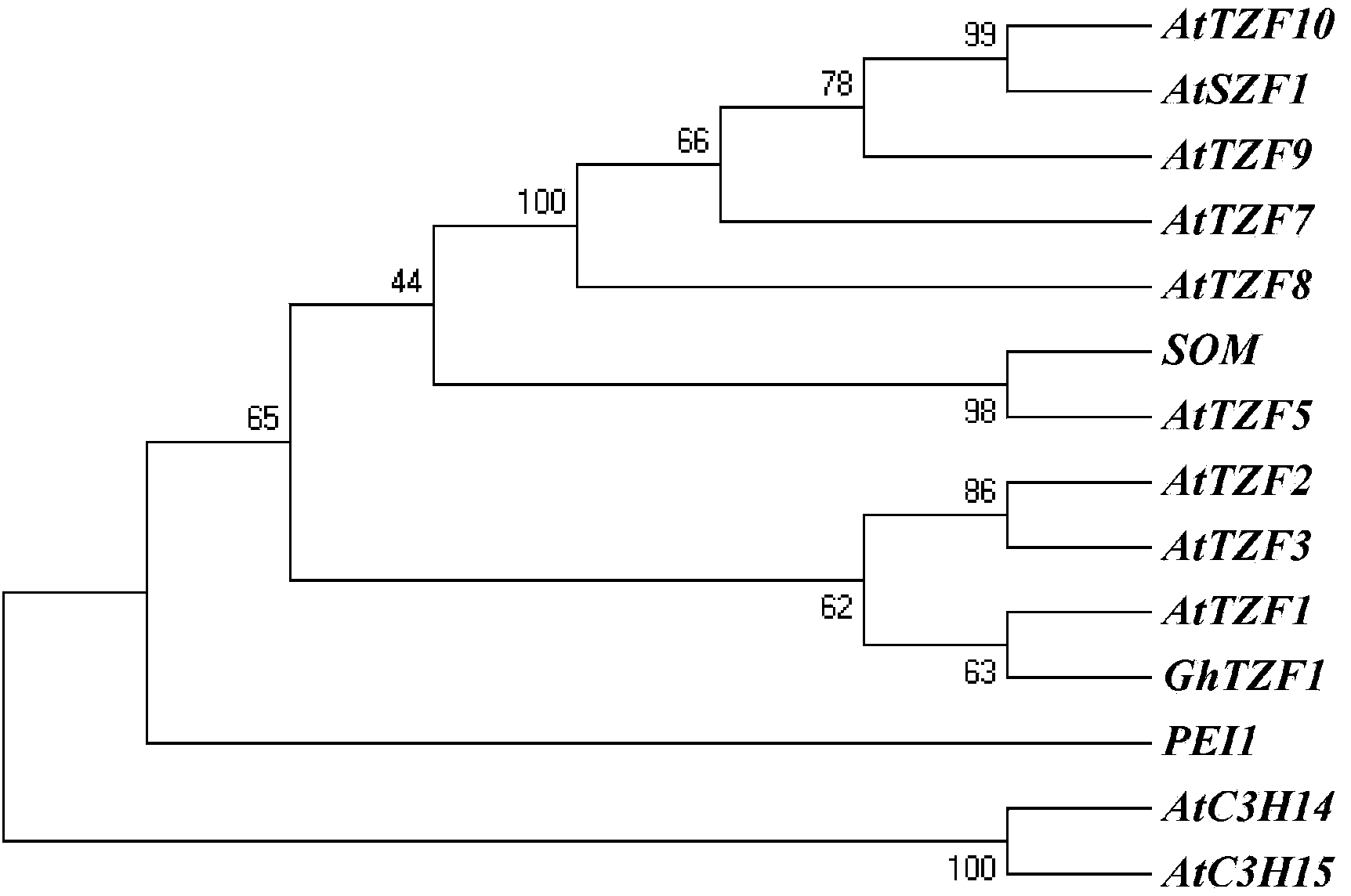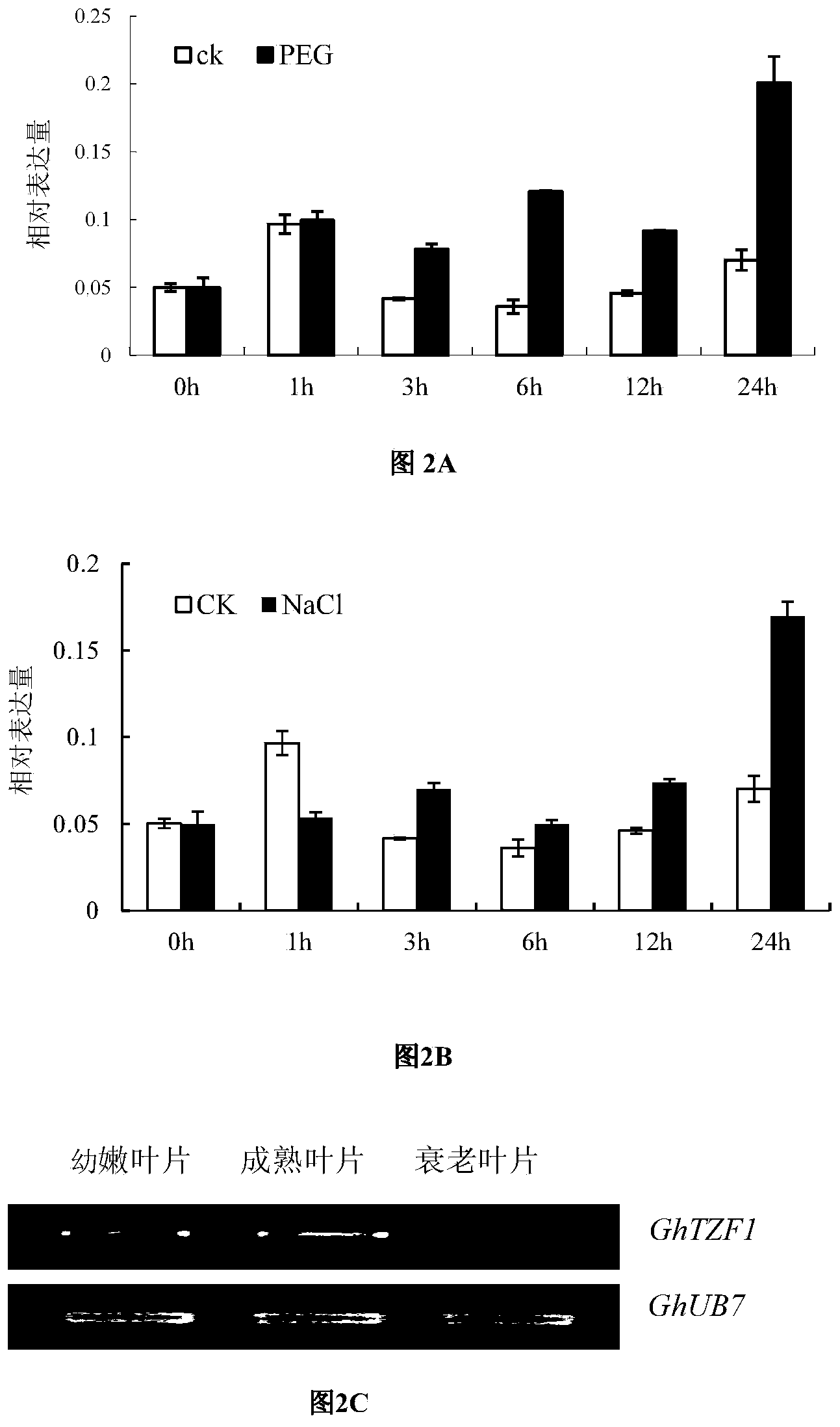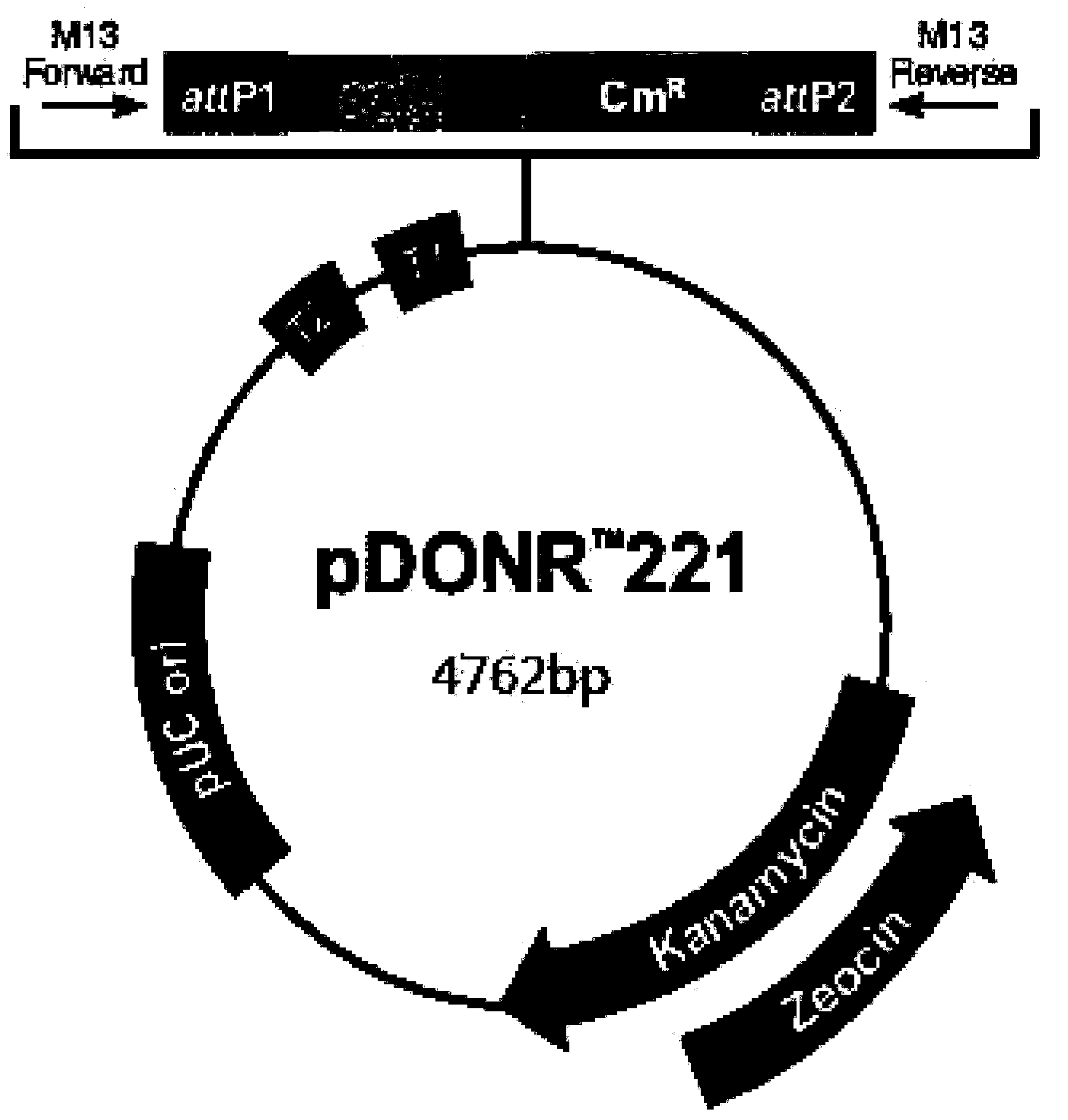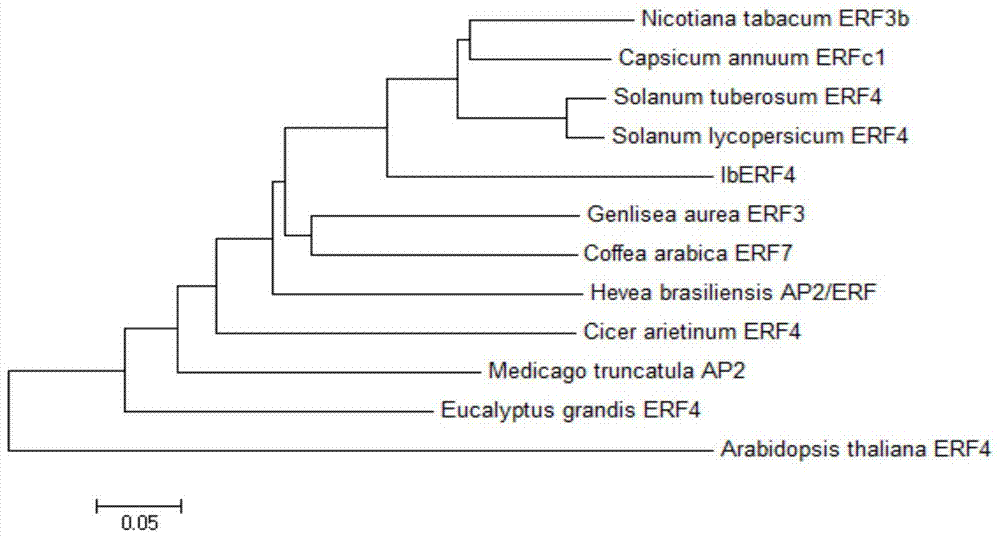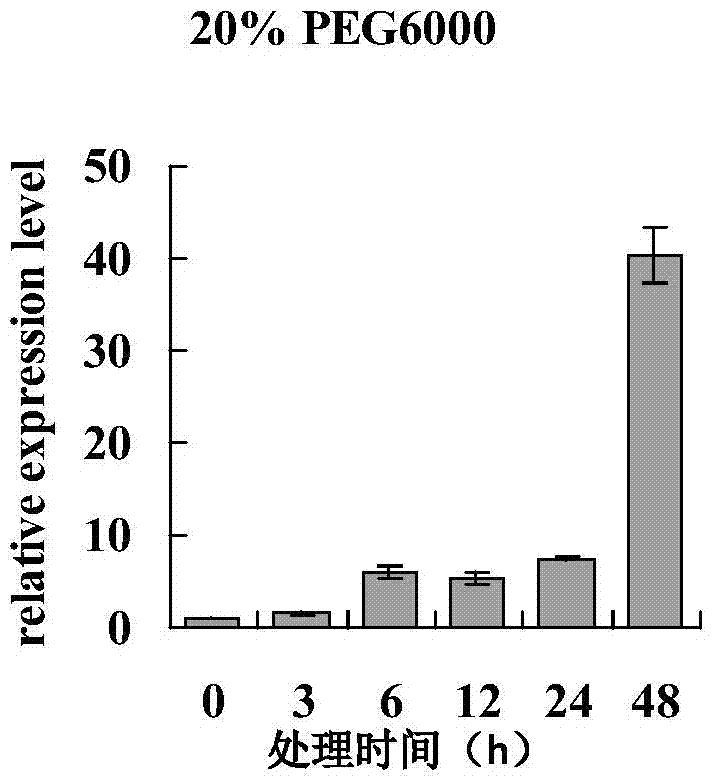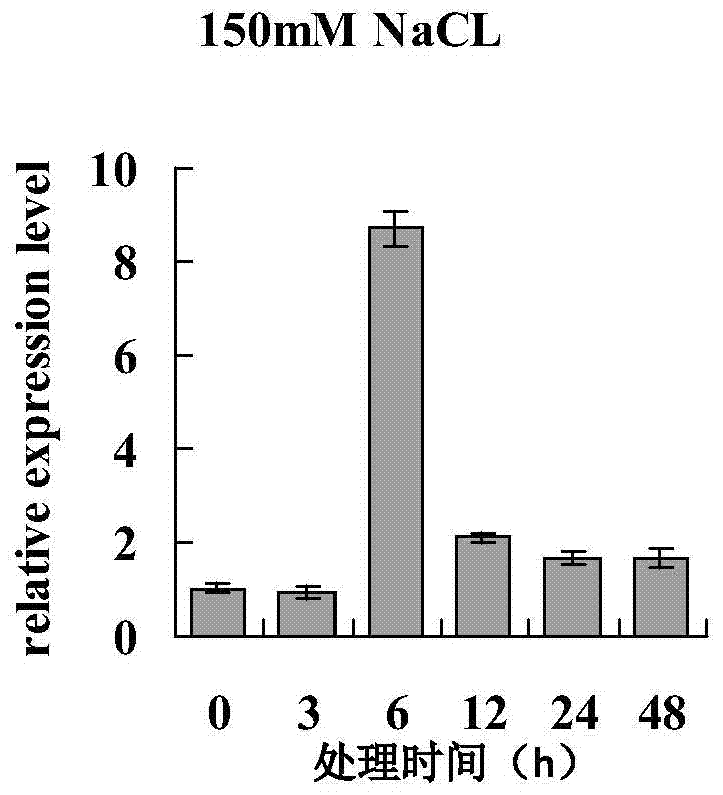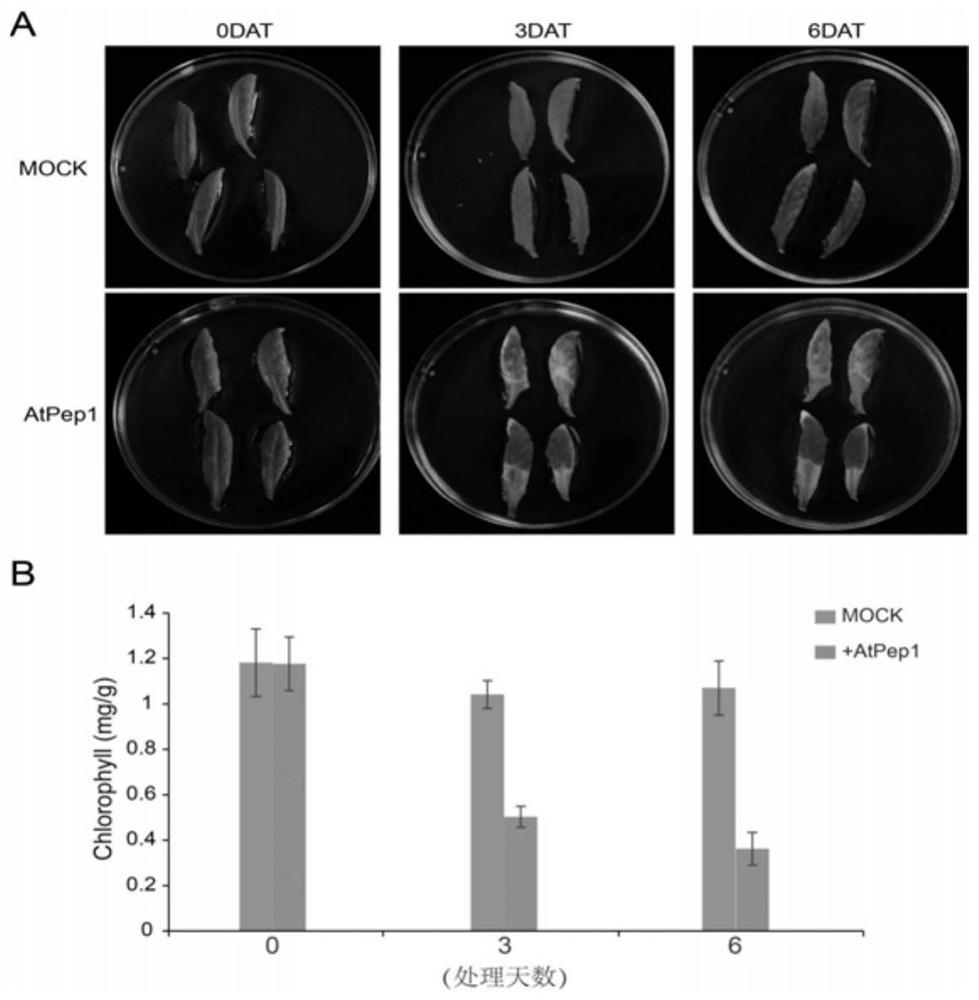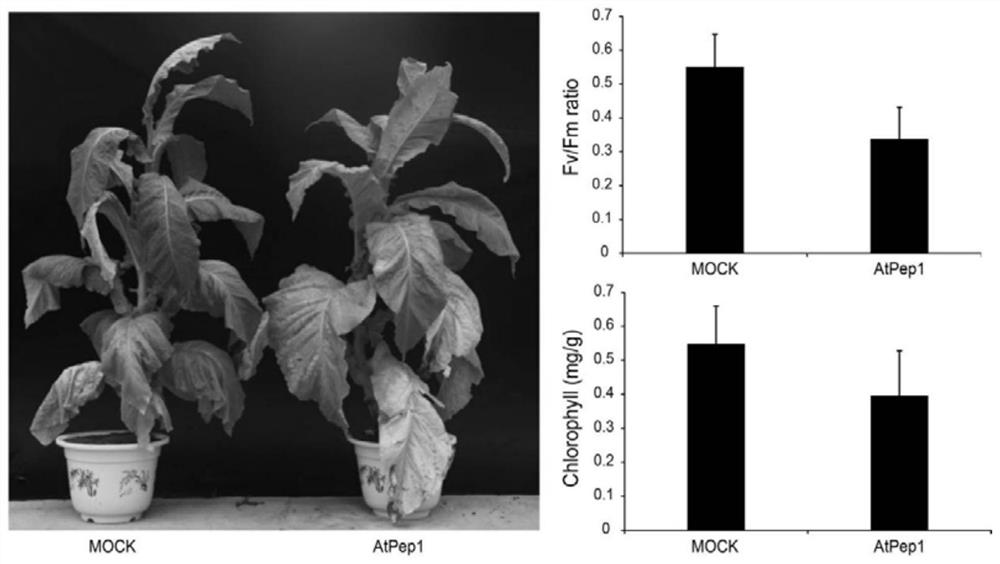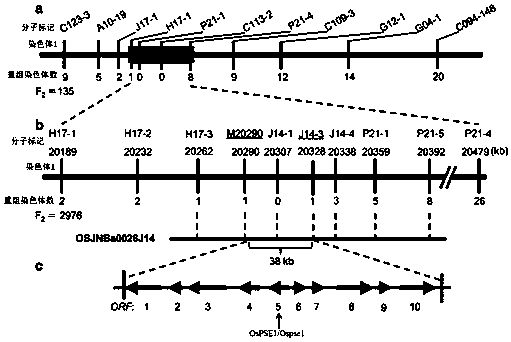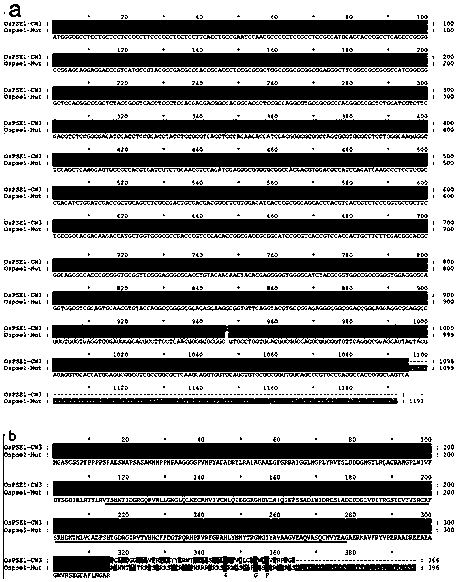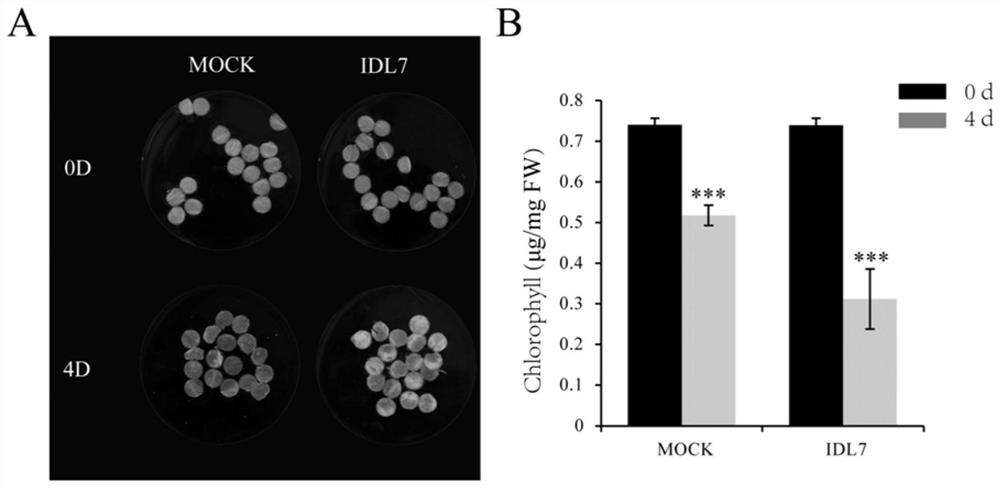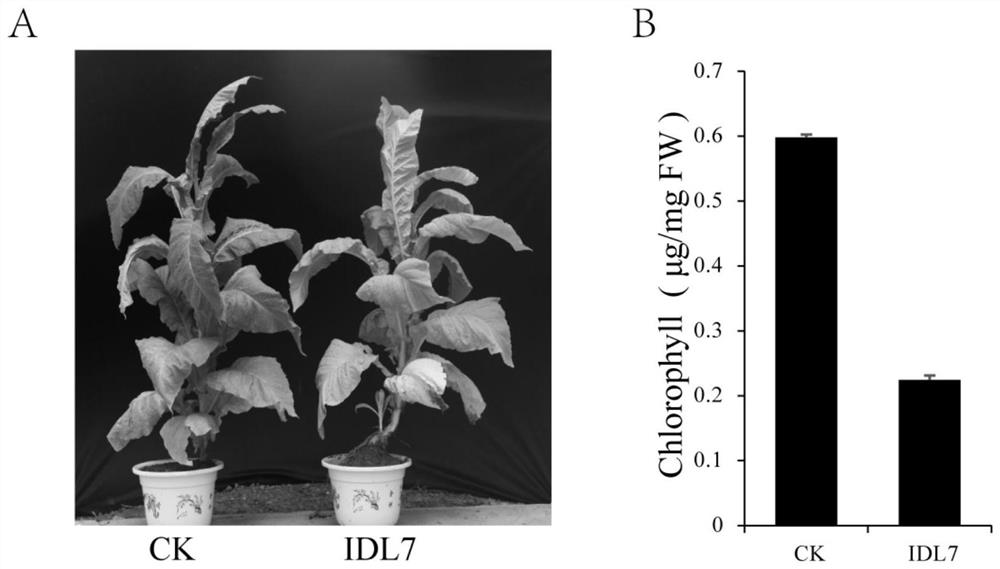Patents
Literature
49 results about "Plant senescence" patented technology
Efficacy Topic
Property
Owner
Technical Advancement
Application Domain
Technology Topic
Technology Field Word
Patent Country/Region
Patent Type
Patent Status
Application Year
Inventor
Plant senescence is the process of aging in plants. Plants have both stress-induced and age-related developmental aging. Chlorophyll degradation during leaf senescence reveals the carotenoids, and is the cause of autumn leaf color in deciduous trees. Leaf senescence has the important function of recycling nutrients, mostly nitrogen, to growing and storage organs of the plant. Unlike animals, plants continually form new organs and older organs undergo a highly regulated senescence program to maximize nutrient export.
Plant growth regulation composition containing plant activator protein
ActiveCN103828828APromote absorptionIncrease chlorophyll contentBiocidePlant growth regulatorsBULK ACTIVE INGREDIENTPlant growth
The invention relates to a plant growth regulation composition containing plant activator protein. The composition comprises an active ingredient A and an active ingredient B, wherein the active ingredient A is selected from the plant activator protein; the active ingredient B is selected from any one of compounds as follows: benzyl aminopurine, brassinolide, indoleacetic acid, harpin protein and gibberellic acid. The composition is mainly used for increasing the plant chlorophyll content, keeping plants green, preventing plant senescence, promoting root development and effective absorption of crops on fertilizers, assisting in good growth of weak parts of the crops, enhancing the absorption of the plants on water and the fertilizers and regulating the balance of the water in the plants so as to improve the drought resistance and the cold resistance of the plants.
Owner:陕西汤普森生物科技有限公司
Use of lysophosphatidylethanolamine (18:1) and lysophosphatidylinositol to retard senescence and to enhance fruit ripening
The present invention relates to a method of enhancing fruit ripening and stability and of delaying senescence in fruit and other plant tissues. This method consists of applying an effective amount of a lysophospholipid, such as lysophosphatidylethanolamine (18:1) (hereinafter referred to as LPE (18:1)) or lysophosphatidylinositol (hereinafter referred to as LPI) to the fruit and other plant tissues. Lysophospholipids such as LPE (18:1) and LPI were found to be superior to other lysophospholipids in delaying senescence and in inhibiting phospholipase D, a key enzyme in mediating membrane deterioration during of plant senescence. LPE (18:1) and LPI are naturally occurring and environmentally safe. Their use could replace many environmentally toxic compounds that are currently being used to retard senescence of flowers, fruits and leaves and to enhance fruit ripening.
Owner:WISCONSIN ALUMNI RES FOUND
Flowering plant growth retardant
InactiveCN103373876AAnti agingPromote growthFertilizer mixturesGrowth retardantMonopotassium phosphate
The invention relates to a flowering plant growth retardant. The flowering plant growth retardant is prepared from the following raw materials according to weight ratio: 10-30% of uniconazole, 20-40% of urea, 2-12% of monopotassium phosphate, 2-12% of calcium nitrate, 2-12% of zinc sulfate, 2-12% of magnesium chloride, 2-12% of EDTA ferric sodium salt, 3-6% of vitamin and 2-4% of bacteriocidal substance. The flowering plant growth retardant is rational in matching, and can prolong the flowering phase, delay plant senescence, enhance plant adverse resistance, maintain better growth conditions and gestures of the flowering plant and prolong the ornamental period when being used for long time.
Owner:TIANJIN NORTH LANDSCAPE DESIGN MUNICIPAL ENG DESIGN INST
Rice senescence control gene OsCKX11 and application thereof
ActiveCN109402078ARegulates the aging processAdjust development periodBacteriaOxidoreductasesBiotechnologyBiology
The invention belongs to the technical field of gene engineering and discloses a rice senescence control gene OsCKX11 and application thereof. An amino acid sequence of the rice leaf senescence control gene OsCKX11 and an amino acid sequence shown as SEQ ID NO.2 are homological by at least 70%. By site-directed mutagenesis of rice cytokinin oxidase coding gene OsCKX11 and mutant phenotypic changeanalysis, the fact that the gene functional deficiency results in rice leaf senescence delaying; in certain premature senescence cultivation varieties, knocking out OsCKX11 by the gene engineering technology enables purposive regulation of a plant senescence process, yield increasing is realized by regulation of a plant population development stage, and a significant application value is achieved.
Owner:ZHEJIANG NORMAL UNIVERSITY
Application of quercetin in plant senescence promoter
ActiveCN110476983ASimple preparation processRaw materials are easy to getBiocidePlant growth regulatorsEthanesulfonic acidMorpholine
The invention provides application of quercetin in a plant senescence promoter, belongs to the field of plant senescence promoters and application thereof, and can be used for preparing quercetin intothe plant senescence promoter to be applied to actual production so as to accelerate the senescence process of plants, especially crop leaves. The quercetin plant senescence promoter is prepared by mixing a quercetin mother solution and a 2-(N-morpholine) ethanesulfonic acid 1 / 2MS solution. A direct spraying application mode can be adopted, the aging process of plant leaves is accelerated, and noextra adverse reaction is generated to plants.
Owner:TOBACCO RES INST CHIN AGRI SCI ACAD
Efficient potato special fertilizer formula
InactiveCN105819929AIncrease productionQuality improvementSuperphosphatesMagnesium fertilisersPhosphoric acidExcessive growth
The invention provides an efficient potato special fertilizer formula which comprises a base fertilizer, a preliminary dressing fertilizer and a secondary dressing fertilizer with the mass ratio being (20-30): (1-1.5): (0.6-0.9); the base fertilizer comprises, by mass, 5-8 parts of urea, 10-15 parts of calcium superphosphate, 8-12 parts of potassium sulphate, 1-2 parts of zinc sulfate, 2-4 parts of magnesium sulfate, 0.5-1 part of copper chloride, 2-3 parts of borax, 10-15 parts of kieselguhr, 5-8 parts of coal ash, 100-140 parts of organic fertilizer and 12-20 parts of vermiculite; the preliminary dressing fertilizer and the secondary dressing fertilizer are nitrogen fertilizer potassium, the mass ratio of nitrogen fertilizer potassium to potash fertilizer in the preliminary dressing fertilizer is (2.5-3.5): 1, and the mass ratio of nitrogen fertilizer potassium to potash fertilizer is (0.8-1.5) :1.According to the potato special fertilizer formula, different fertilizers are applied in different stages according o the growth characteristic of potatoes, excessive growth of potato seedlings in the earlier stage, the nutrition loss, fertilizer lack in the later period and early plant senescence can be avoided, the yield of potatoes is remarkably raised, and quality is remarkably improved.
Owner:HUIDONG YIDA AGRI TRADE CO LTD
Application of melatonin in delaying paddy leaf senescence and tolerating salt
InactiveCN104770292AIncreased ability to resist oxidative stressIncrease productionPlant genotype modificationControl signalMolecular breeding
The invention discloses application of melatonin in delaying paddy leaf senescence and tolerating salt. The invention sets forth application of melatonin in delaying plant senescence. The plant senescence specifically can be salt-induced plant senescence and / or dark-induced plant senescence and / or age-mediated plant senescence. The plant senescence specifically can be embodied by (a) and / or (b) and / or (c) and / or (d) and / or (e) below: (a) plant senescence; (b) leaf senescence; (c) cell death; (d) leaf cell death; and (e) leaf photosynthetic rate decline. The application is helpful to deeply understanding a melatonin-mediated senescence control signal network, meanwhile, provides effective reference and help for prevention and control of senescence in agriculture, horticulture and flowers, and has potential application value in high-yield molecular breeding and preservation and transportation of harvested vegetables and flowers.
Owner:百格基因科技(江苏)有限公司
PSY1 mature polypeptide plant aging inhibitor as well as preparation method and application thereof
ActiveCN113907077AGet goodThe preparation method is simple and easyBiocidePlant growth regulatorsBiotechnologyAmino acid
The invention provides a PSI1 mature polypeptide plant aging inhibitor and a preparation method and an application thereof, and belongs to the field of plant aging inhibitors, the PSI1 mature polypeptide plant aging inhibitor takes a PSI1 polypeptide mature body as a main functional component, and the PSI1 polypeptide mature body has the following amino acid sequence: D-Y-G-D-P-S-A-N-P-K-H-D-P-G-V-P-P-S. The plant aging inhibitor provided by the invention can inhibit the senescence of leaves of plants, so that the senescence of the plants is delayed, and the plant senescence inhibitor has no other extra bad performance and has extremely strong field operability.
Owner:TOBACCO RES INST CHIN AGRI SCI ACAD
Protein TaPaO associated with plant senescence induction and male sterility, coding gene and application thereof
The invention relates to the field of gene engineering, in particular to a protein TaPaO associated with plant senescence induction and male sterility, a coding gene and application thereof. The protein has an amino acid sequence as shown in SEQ ID NO.1, and has a nucleotide sequence as shown in SEQ ID NO.2 or 3. The protein associated with senescence induction and male sterility and the coding gene thereof have certain effect on study into sterility mechanisms of photo-temperature sensitive male sterile wheat, and provide important theoretical and practical significance for studying and opening up novel ways of utilizing wheat heterosis.
Owner:BEIJING ACADEMY OF AGRICULTURE & FORESTRY SCIENCES
Rice secretary type thioredoxin gene and application thereof
InactiveCN101838653AAnti agingIncrease productionPlant peptidesGenetic engineeringBiotechnologyNucleotide
Owner:HEBEI NORMAL UNIV
Planting method of high-quality and high-yield peanuts
InactiveCN108040792AImprove qualityIncreased mitogen contentSuperphosphatesBio-organic fraction processingGibberellinOleic Acid Triglyceride
The invention belongs to the technical field of peanut planting, and particularly relates to a planting method of high-quality and high-yield peanuts. The method includes the following steps that 1, before sowing, soil of a planting land is treated; 2, before sowing, peanut seeds are treated and sown; 3, field management after sowing is conducted, wherein before sowing, the multiple seeds are treated, the isoprenoid metabolic pathway is effectively affected, the content of ethylene is reduced by inhibiting synthesis of gibberellin, the cytokinin content is increased so as to change the hormonelevel, and root strengthening and seedling strengthening are promoted; a bio-organic fertilizer is applied to serve as a base fertilizer, through application of a fertilizer solution, the fat contentand the protein content of peanut kernels are effectively improved, and the sugar content is improved; the photosynthesis can be enhanced, plant senescence is delayed, the distribution of dry matterto pods is promoted, the ratio of oleic acid / linoleic acid is improved, the prosperous growth can be controlled, the height of plants is reduced, the number of fruits of a single plant and the yield of the pods are increased, and the method has an obvious effect on increasing the yield and the quality of the peanuts.
Owner:凤阳县中益绿洲花木种植专业合作社
Plant growth regulation composition containing triacontanol
The invention relates to a plant growth regulation composition containing triacontanol. The plant growth regulation composition comprises an active ingredient A and an active ingredient B, wherein the active ingredient A is selected from triacontanol, and the active ingredient B is selected from any one of the following compounds: benzyl aminopurine, brassinolide, diethylaminoethyl hexanoate and humic acid. The composition is mainly used for increasing the plant chlorophyll content, keeping plants green, preventing plant senescence, promoting root development and effective absorption of crops on fertilizers, assisting in good growth of weak parts of the crops, enhancing the absorption of the plants on water and the fertilizers and regulating the balance of water in the plants so as to improve the drought resistance and the cold resistance of the plants.
Owner:SHAANXI MEIBANG PHARMA GRP CO LTD
A novel stay-green gene and method for preparing stay-green transgenic plants
The present invention relates to a novel SGR (STAY-GREEN) gene participating in chlorophyll catabolism during plant senescence, thereby causing leaf yellowing, a method for preparing stay-green transgenic plants maintaining greenness during leaf senescence, which being characterized by mutating the SGR gene, suppressing the expression of the SGR gene, or deactivating the SGR protein which is encoded by the SGR gene, and stay-green mutant plants produced by said method. According to the present invention, leaf greenness can be maintained for a long time by mutating the SGR gene, suppressing the expression of the SGR gene, or inactivating the protein encoded by the SGR gene, thereby preventing leaf yellowing of plants in yellowing plant caused by chlorophyll catabolism during leaf senescence.
Owner:SEOUL NAT UNIV R&DB FOUND
Plant senescence-related protein GhWRKY91 as well as coding gene and application thereof
ActiveCN110872342AGreat theoretical valueSignificant application valuePlant peptidesFermentationBiotechnologyPremature aging
The invention discloses a plant senescence-related protein GhWRKY91 as well as a coding gene and application thereof. The protein provided by the invention is a protein shown in a sequence 1 in a sequence table. The nucleic acid molecule encoding the protein belongs to the protection scope of the invention. The invention also provides a protection range for the following application of the protein: regulating a plant senescence process; regulating a plant leaf senescence process; inhibiting the plant senescence process; suppressing the plant leaf senescence process; regulating the plant senescence process in a drought stress environment; regulating the plant leaf senescence process in the drought stress environment; regulating the plant drought resistance; and improving the plant drought resistance. The invention also provides a protection range for a method for preparing a transgenic plant; and the method comprises the following step: introducing the gene into a starting plant to obtain the transgenic plant with a delayed senescence process. The protein and gene provided by the invention have great theoretical value for the study of a plant senescence mechanism, and have great application value for cultivating anti-premature senescence plants, especially anti-premature senescence cotton.
Owner:INST OF COTTON RES CHINESE ACAD OF AGRI SCI
Plant senescence-specific gene and its promoter
Disclosed herein is a novel gene which is isolated from Arabidopsis thaliana and shows senescence-specific expression. The expression of the gene is under the regulation of a promoter which is also disclosed herein. The gene in combination with the promoter can be utilized at the molecular level to control plant senescence in an environmentally friendly manner.
Owner:KOREA UNIV RES & BUSINESS FOUND
A kind of plant senescence-specific promoter and application thereof
The invention relates to a plant aging specific promoter and application thereof. In the invention, a promoter capable of responding to plant aging signals and regulating high expression of target gene specificity is separated for the first time. The promoter is very useful for regulating the expression of the target gene in a plant aging process, so as to change the plant characters, state and aging process.
Owner:SHANGHAI INST OF BIOLOGICAL SCI CHINESE ACAD OF SCI
Application of GhTZF1 gene to reinforcement on drought resistance of plants and senility delay
InactiveCN103468712AImprove toleranceImprove drought tolerancePlant peptidesFermentationBiotechnologyComplementary deoxyribonucleic acid
The invention belongs to the technical field of plant genetic engineering and particularly relates to isolation and cloning, functional verification and application of a GhTZF1 gene separated from cotton. A cDAN (complementary Deoxyribonucleic acid) sequence of the cloned GhTZF1 disclosed by the invention is shown as SEQ ID NO:1; and an amino acid sequence of a coding gene of the GhTZF1 is shown as SEQ ID NO:2. The invention also discloses application of the gene to improvement on drought tolerance of arabidopsis thaliana and delay on plant senescence under the drought stress.
Owner:HUAZHONG AGRI UNIV
Plant growth regulation composition containing tetramethyl glutaric aciduria
InactiveCN105325430AHigh activityPromote absorptionBiocidePlant growth regulatorsPlant growthNaphthylacetic acid
The invention relates to a plant growth regulation composition containing tetramethyl glutaric aciduria, which contains an active component A and an active component B, the active component A is selected from tetramethyl glutaric aciduria, the active component B is selected from any one of the compounds including benayl aminopurine and naphthylacetic acid, and the plant growth regulation composition is mainly used for enhancing enzyme activity, promoting seed germination, increasing germination rate, enhancing photosynthetic intensity, increasing chlorophyll content, keeping plants green and preventing plant senescence, promoting root development and effective absorption of fertilizers by crops, assisting in good growth of weak parts of the crops, enhancing the absorption of the plants on water and the fertilizers and regulating the balance of the water in the plants so as to improve the drought resistance and the cold resistance of the plants.
Owner:SHAANXI MEIBANG PHARMA GRP CO LTD
idl4 mature polypeptide plant aging accelerator, preparation method and application
ActiveCN106614586BGet goodThe preparation method is simple and easyBiocidePlant growth regulatorsAdditive ingredientMorpholine
The invention provides an IDL4 mature polypeptide plant senescence accelerator, a preparation method and application thereof and belongs to the field of plant senescence accelerators. The plant senescence accelerator can accelerate leaf senescence of plants to accelerate senescence of the plants and has no other extra bad phenotypes. A functional ingredient of the plant senescence accelerator is IDL4 mature polypeptide, and an amino acid sequence of the ILD4 mature polypeptide is shown as Pro-Val-Pro-Ala-Ser-Ala-Pro-Ser-Arg-Lys-His-Asn. The IDL4 mature polypeptide plant senescence accelerator comprises the IDL4 mature polypeptide and 2-(N-morpholine) ethanesulfonic solution which is formed by dissolving 2-(N-morpholine) ethanesulfonic monohydrate in 1 / 2 MS liquid culture medium or MS liquid culture medium. The IDL4 mature polypeptide plant senescence accelerator can be used for accelerating plant senescence.
Owner:TOBACCO RES INST CHIN AGRI SCI ACAD
Application of physcomitrella patens ATG3 gene in plant senescence and salt tolerance stress
InactiveCN109609518AAccelerated agingReduced tolerance to salt stressPlant peptidesFermentationAgricultural scienceNucleotide
The present invention provides an application of a physcomitrella patens ATG3 gene in plant senescence and salt tolerance stress, and relates to the technical field of gene application. A nucleotide sequence of the physcomitrella patens ATG3 gene is shown in SEQ ID NO.1. Compared with wild type, the physcomitrella patens ATG3 gene mutant is accelerated in senescence under normal culture conditionsand reduced in salt tolerance stress, and can be used for research on physcomitrella patens in the plant senescence and salt tolerance traits.
Owner:KUNMING INST OF BOTANY - CHINESE ACAD OF SCI
Novel plant senescence-specific gene and its promoter
Disclosed herein is a novel gene which is isolated from Arabidopsis thaliana and shows senescence-specific expression. The expression of the gene is under the regulation of a promoter which is also disclosed herein. The gene in combination with the promoter can be utilized at the molecular level to control plant senescence in an environmentally friendly manner.
Owner:KOREA UNIV RES & BUSINESS FOUND
Plant senescence-inducible promoter
This invention provides a plant senescence-inducible promoter and its relevant recombinant plasmid and transgenic plant.
Owner:NAT TAIWAN UNIV
Application of protein OsARE1 in regulating plant senescence
ActiveCN109912703AImproved aging-related traitsImproved chlorophyll contentPlant peptidesGenetic engineeringBiotechnologyGene silencing
The invention discloses application of protein OsARE1 in regulating plant senescence. The protein OsARE1 is a protein having an amino acid sequence which is shown as sequence 1 in a sequence table. Experiments prove that an encoding gene of the protein OsARE1 in rice is silenced or knocked off, so that plant senescence can be retarded. The protein OsARE1 and its encoding gene are an effective genetic target to improve the ability of plants to resist senescence and related traits, and have potential market value and a good application prospect in the field of agriculture. The application has important applicable value.
Owner:INST OF GENETICS & DEVELOPMENTAL BIOLOGY CHINESE ACAD OF SCI
A method for promoting lupine pod formation and increasing seed yield
ActiveCN105706692BPromote tympanumSolve the phenomenon of insufficiencyFlowers cultivationFertilising methodsMonopotassium phosphateVernalization
Disclosed is a method for promoting lupin pod bearing and improving the seed yield.According to the method, the seed yield of lupin is improved through low-temperature vernalization and soil pH value adjustment with the combination of humic acid fertilizer application, light treatment, temperature adjustment and reagent application of a flowering phase and a pod bearing period.The method comprises the main steps that 1, seeds are soaked with distilled water for 6 h, and intermittent low-temperature treatment is performed for 15-20 d; 2, potted nutrition soil is mixed with sulfur powder to lower the pH value; 3, 4 g of compound fertilizer is applied five times in each pot within the growth period, and 3 g of humic acid fertilizer is applied three times in each pot; 4, 13.5 h of illumination is ensured every day on the last ten days of January; 5, temperature is increased in the earlier growth stage, and cooling is performed at the later stage; 6, 500 mg / L monopotassium phosphate and a 0.1% borax mixed solution are sprayed two times in the flowering stage; 7, after pod bearing, 300 mg / L monopotassium phosphate, 10 mg / L heteroauxin and a 0.1% borax mixed solution are applied five times.By adopting the method for lupin planting, flowering can be achieved ahead of time, plant senescence is slowed down, pod bearing is promoted, the seed yield is improved, and the technical problem that the seed yield of lupin is low is solved.
Owner:INST OF BIOLOGICAL RESOURCES JIANGXI ACAD OF SCI
Application of GhTZF1 gene to reinforcement on drought resistance of plants and senility delay
InactiveCN103468712BImprove toleranceImprove drought tolerancePlant peptidesFermentationBiotechnologyComplementary deoxyribonucleic acid
The invention belongs to the technical field of plant genetic engineering and particularly relates to isolation and cloning, functional verification and application of a GhTZF1 gene separated from cotton. A cDAN (complementary Deoxyribonucleic acid) sequence of the cloned GhTZF1 disclosed by the invention is shown as SEQ ID NO:1; and an amino acid sequence of a coding gene of the GhTZF1 is shown as SEQ ID NO:2. The invention also discloses application of the gene to improvement on drought tolerance of arabidopsis thaliana and delay on plant senescence under the drought stress.
Owner:HUAZHONG AGRI UNIV
A kind of iberf4 gene encoding sweet potato erf transcription factor and its application
InactiveCN104862320BGenetic improvementAccelerated agingBacteriaPlant peptidesBiotechnologyNucleotide
The invention discloses an IbERF4 gene for coding a sweet potato ERF transcription factor and an application thereof. A nucleotide sequence of the IbERF4 gene is expressed by SEQ (Sequence) ID (Identity) NO. (Number) 1 and the IbERF4 gene is responsible for regulating the plant stress resistance and promoting the plant senescence. An amino acid sequence of protein coded through the IbERF4 gene is expressed by SEQ ID NO. 2. According to the IbERF4 gene for coding the sweet potato ERF transcription factor and the application thereof, the complete cDNA (complementary Deoxyribose Nucleic Acid) for coding the ERF transcription factor is separated from sweet potatoes and connected onto a plant expression vector, plants are transformed by an agrobacterium infection method, transgenic plants are obtained, the stress resistance analysis is performed on transgenic plants, and the ERF transcription factor can respond to adversity signals, the saline-alkaline resistance of the plants can be negatively regulated, and the pro-senescence of the transgenic plants is achieved due to results. The IbERF4 gene can be applied to plant genetic improvement.
Owner:JIANGSU ACADEMY OF AGRICULTURAL SCIENCES
Atpep1 mature polypeptide plant aging accelerator and its preparation method and application
ActiveCN112586500BGet goodThe preparation method is simple and easyBiocidePlant growth regulatorsAmino acidBotany
The present invention proposes an AtPep1 mature polypeptide plant aging accelerator and its preparation method and application, belonging to the field of plant aging accelerators. The AtPep1 mature polypeptide plant aging accelerator uses AtPep1 mature polypeptide as the main functional component. The AtPep1 mature polypeptide has the following Amino acid sequence: A‑T‑K‑V‑K‑A‑K‑Q‑R‑G‑K‑E‑K‑V‑S‑S‑G‑R‑P‑G‑Q‑H‑N. The plant senescence accelerator provided by the invention can accelerate the senescence of leaves of plants and accelerate the senescence without other additional adverse performances, and has strong operability in the field.
Owner:TOBACCO RES INST CHIN AGRI SCI ACAD
ospse1 Application of genes in regulating plant senescence
ActiveCN104611361BDelay agingPromote accumulationVector-based foreign material introductionAngiosperms/flowering plantsPremature agingMolecular breeding
The invention belongs to the technical field of gene engineering, and particularly discloses an application of an OsPSE1 gene in plant senescence regulation. According to the application of the OsPSE1 gene in plant senescence regulation, one premature aging rice plant is utilized, the OsPSE1 gene is cloned with a map-based cloning method, functional analysis is performed, and the result shows that the premature aging rice can return to normal through expression of the OsPSE1 gene in premature aging rice, and plant senescence can be further delayed and rice biomass accumulation is increased through overexpression of the OsPSE1 gene in normal rice; and the result proves that the OsPSE1 gene has better application potential in the aspect of increase of crop yield. The gene engineering means is utilized to regulate and control the expression level of the OsPSE1 gene for molecular breeding, and the OsPSE1 gene has potential application value in the aspect of increase of crop yield.
Owner:SOUTH CHINA AGRI UNIV
Idl7 mature polypeptide plant aging accelerator, its preparation method and application
ActiveCN112400881BGet goodThe preparation method is simple and easyPeptide-nucleic acidsBiocideAmino acidBotany
The present invention proposes an IDL7 mature polypeptide plant aging accelerator, its preparation method and application, and belongs to the field of plant aging accelerators. The IDL7 mature polypeptide plant aging accelerator uses IDL7 mature polypeptide as the main functional component. The IDL7 mature polypeptide has the following properties: Amino acid sequence: F‑G‑S‑L‑V‑L‑N‑A‑L‑P‑K‑G‑S‑R‑P‑G‑S‑G‑P‑S‑K‑K‑T‑N . The plant senescence accelerator provided by the invention can accelerate the senescence of leaves of plants and accelerate the senescence without other additional adverse performances, and has strong operability in the field.
Owner:TOBACCO RES INST CHIN AGRI SCI ACAD
Application of Quercetin in Plant Aging Accelerator
ActiveCN110476983BSimple preparation processRaw materials are easy to getPlant growth regulatorsBiocideBiotechnologyEthanesulfonic acid
The invention proposes an application of quercetin in a plant senescence accelerator, which belongs to the field of plant senescence accelerators and applications thereof. Quercetin can be prepared into a plant senescence accelerator and applied in actual production to accelerate the growth of plants, especially crop leaves. the aging process. The quercetin plant aging accelerator is prepared by mixing quercetin mother liquor and 1 / 2MS solution of 2-(N-morpholine)ethanesulfonic acid. The invention can adopt the application mode of direct spraying to accelerate the senescence process of plant leaves without causing additional adverse reactions to plants.
Owner:TOBACCO RES INST CHIN AGRI SCI ACAD
Features
- R&D
- Intellectual Property
- Life Sciences
- Materials
- Tech Scout
Why Patsnap Eureka
- Unparalleled Data Quality
- Higher Quality Content
- 60% Fewer Hallucinations
Social media
Patsnap Eureka Blog
Learn More Browse by: Latest US Patents, China's latest patents, Technical Efficacy Thesaurus, Application Domain, Technology Topic, Popular Technical Reports.
© 2025 PatSnap. All rights reserved.Legal|Privacy policy|Modern Slavery Act Transparency Statement|Sitemap|About US| Contact US: help@patsnap.com



